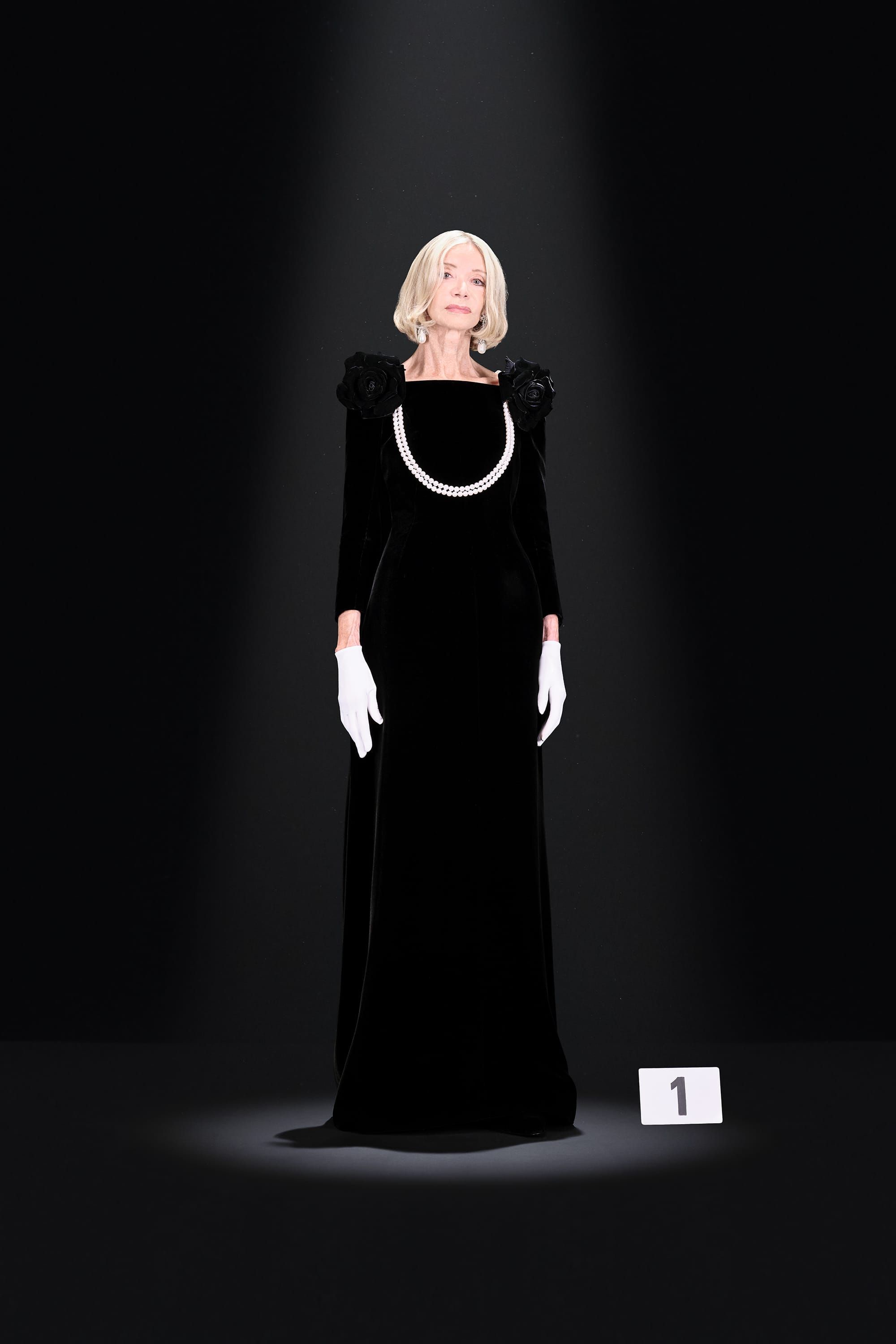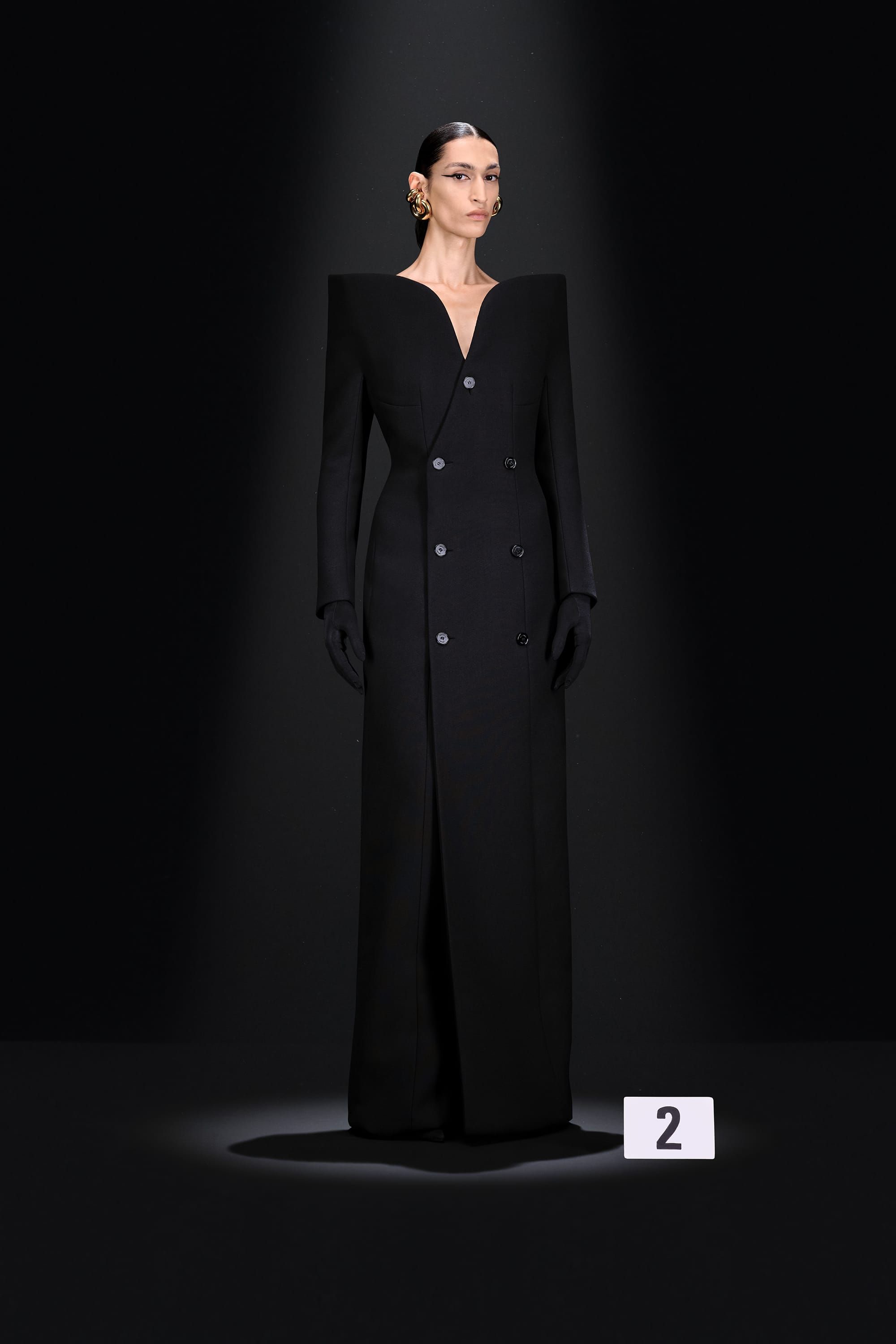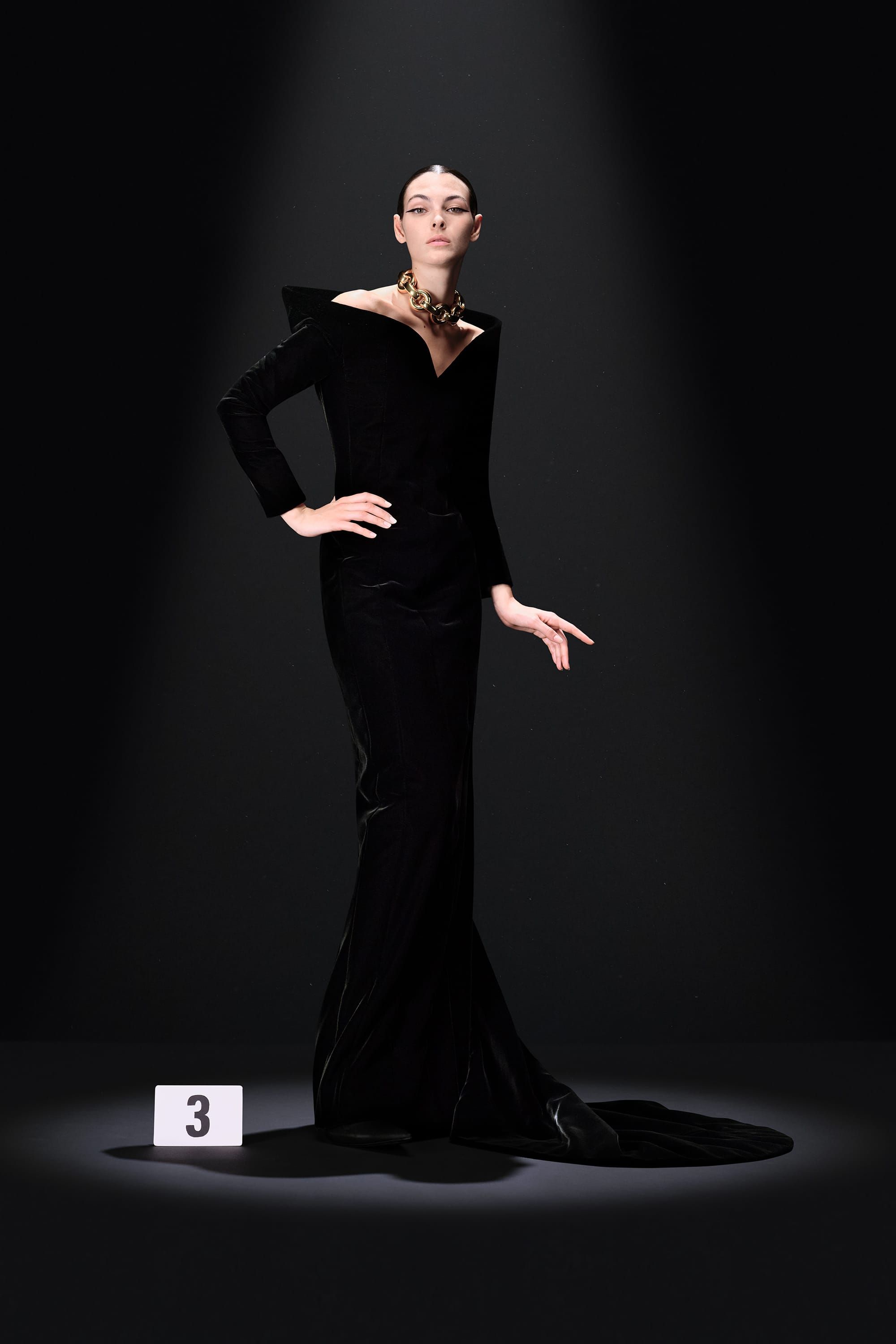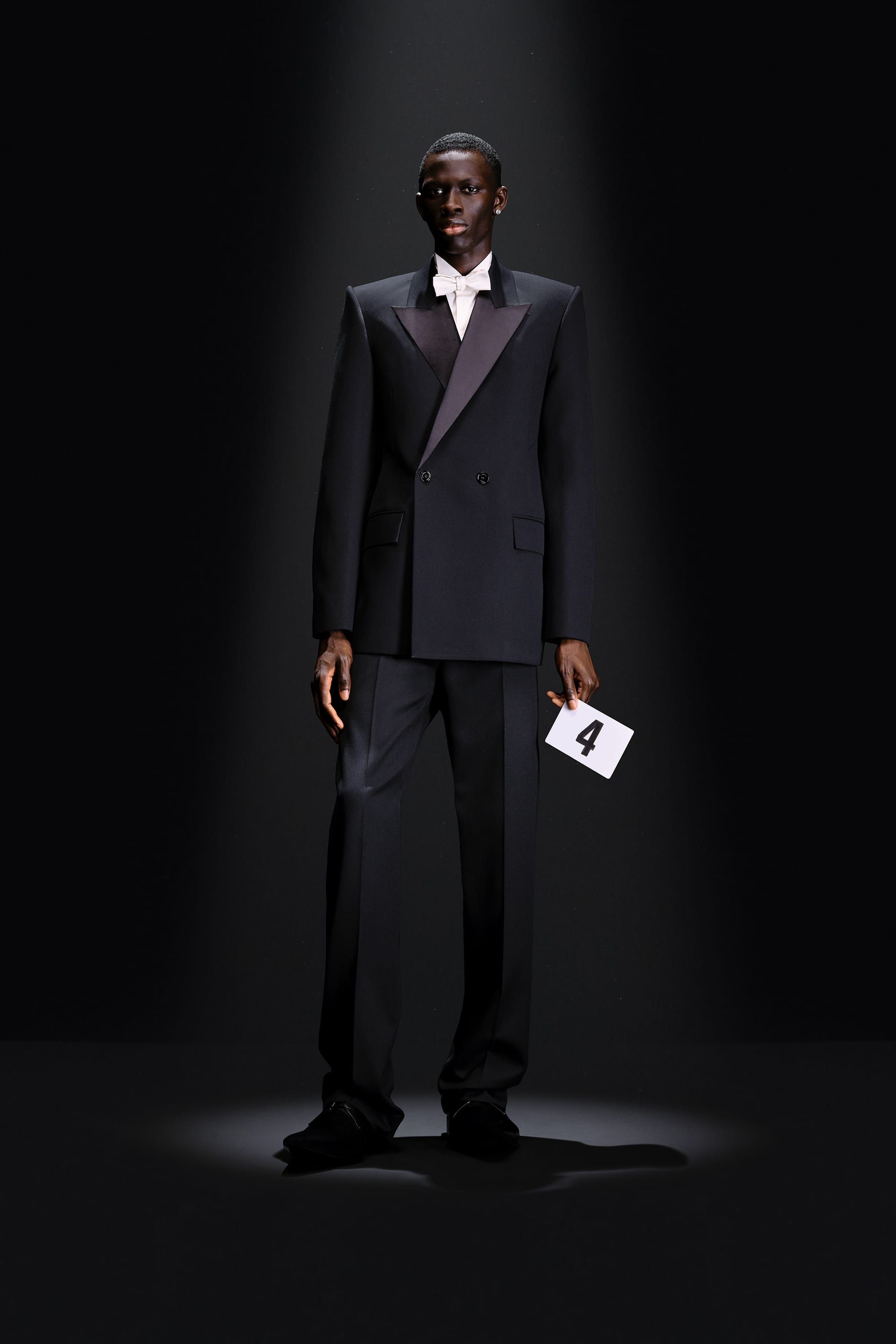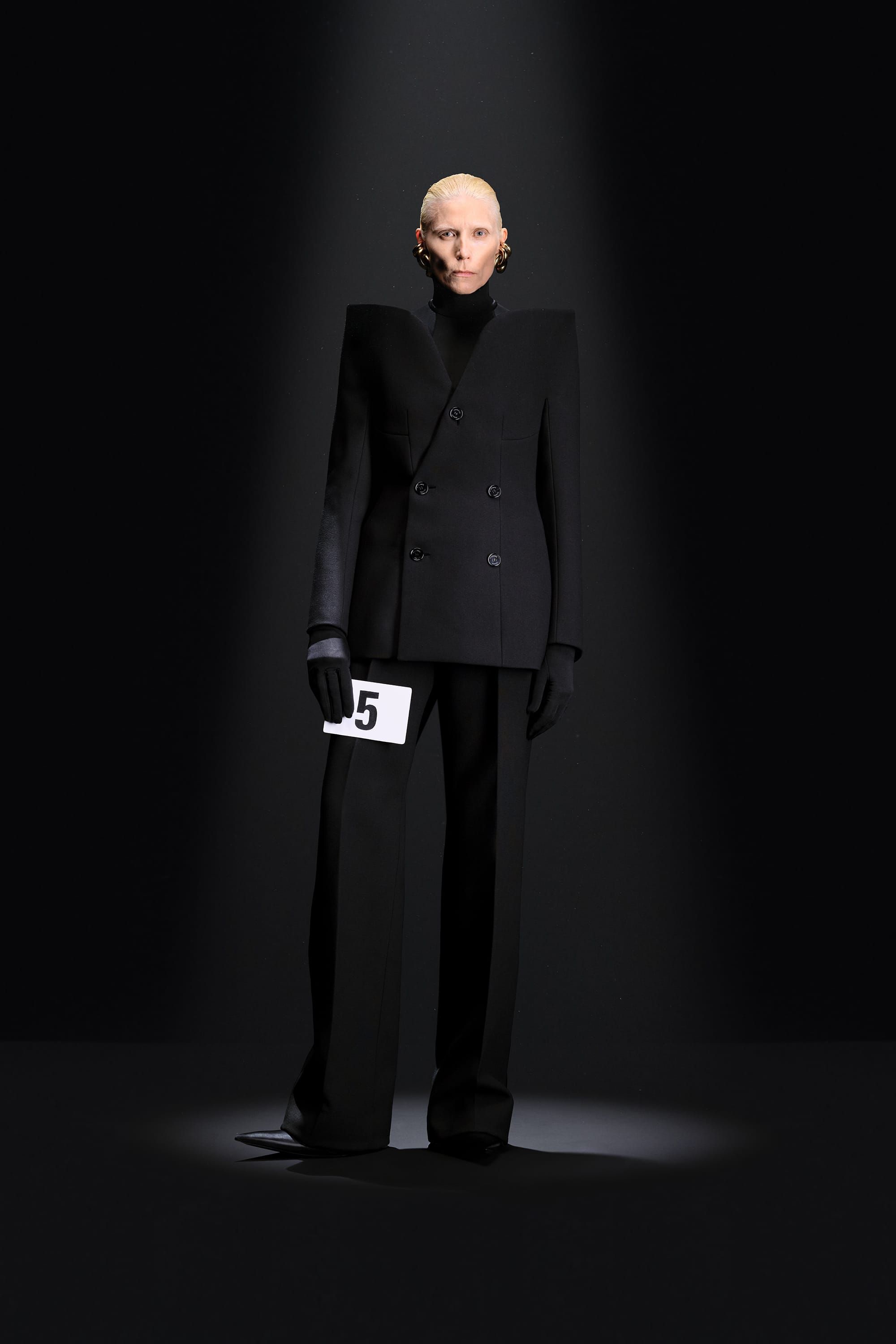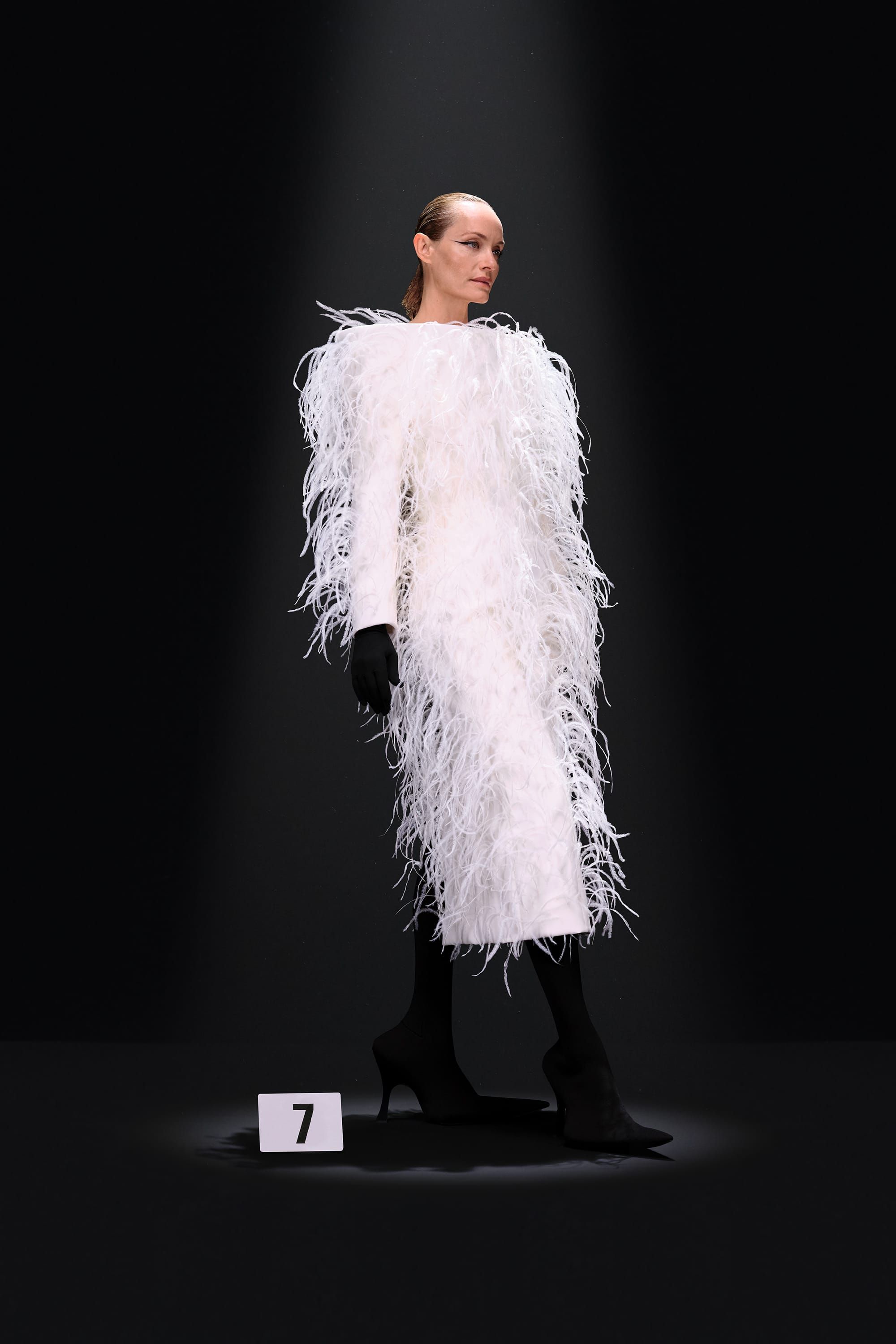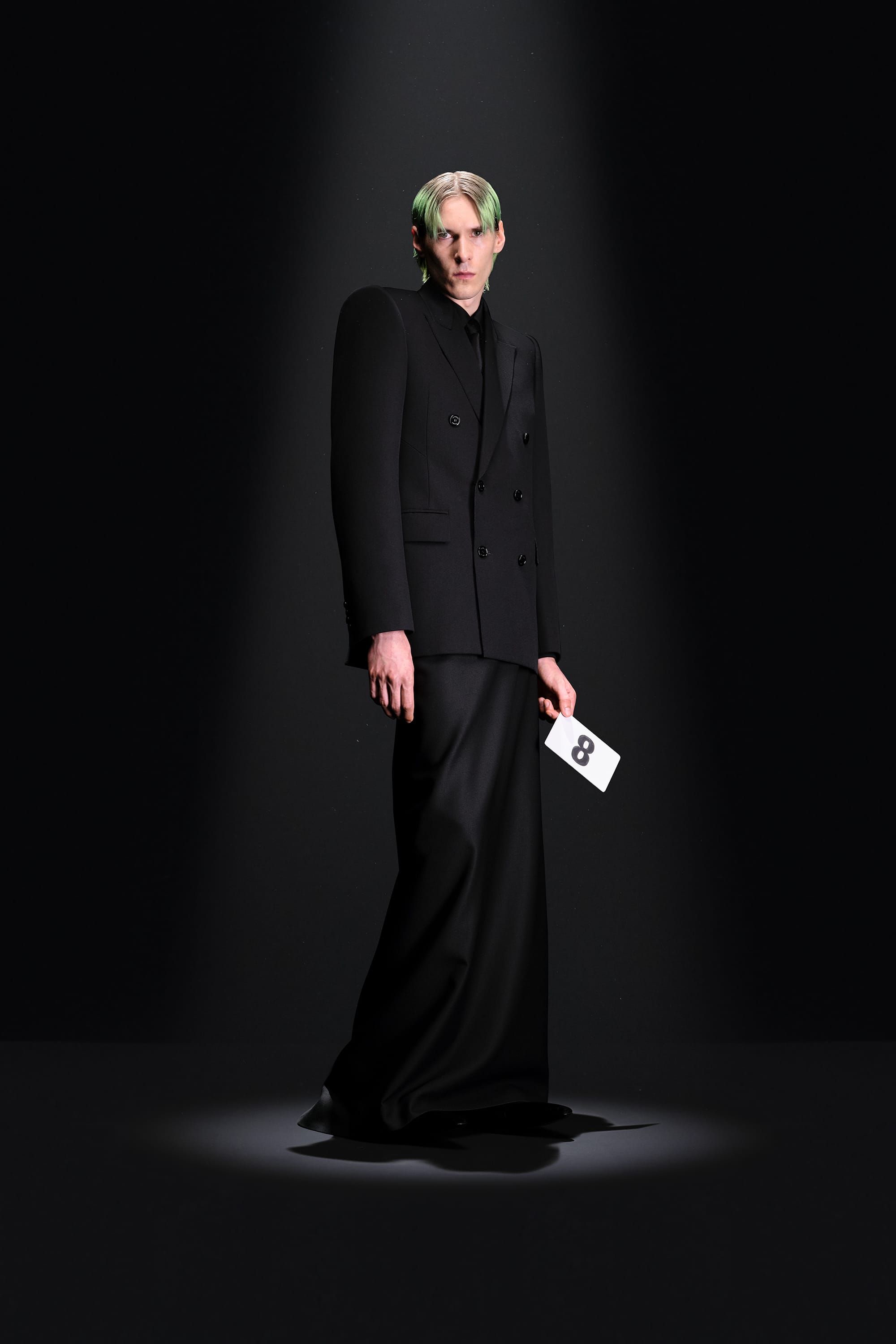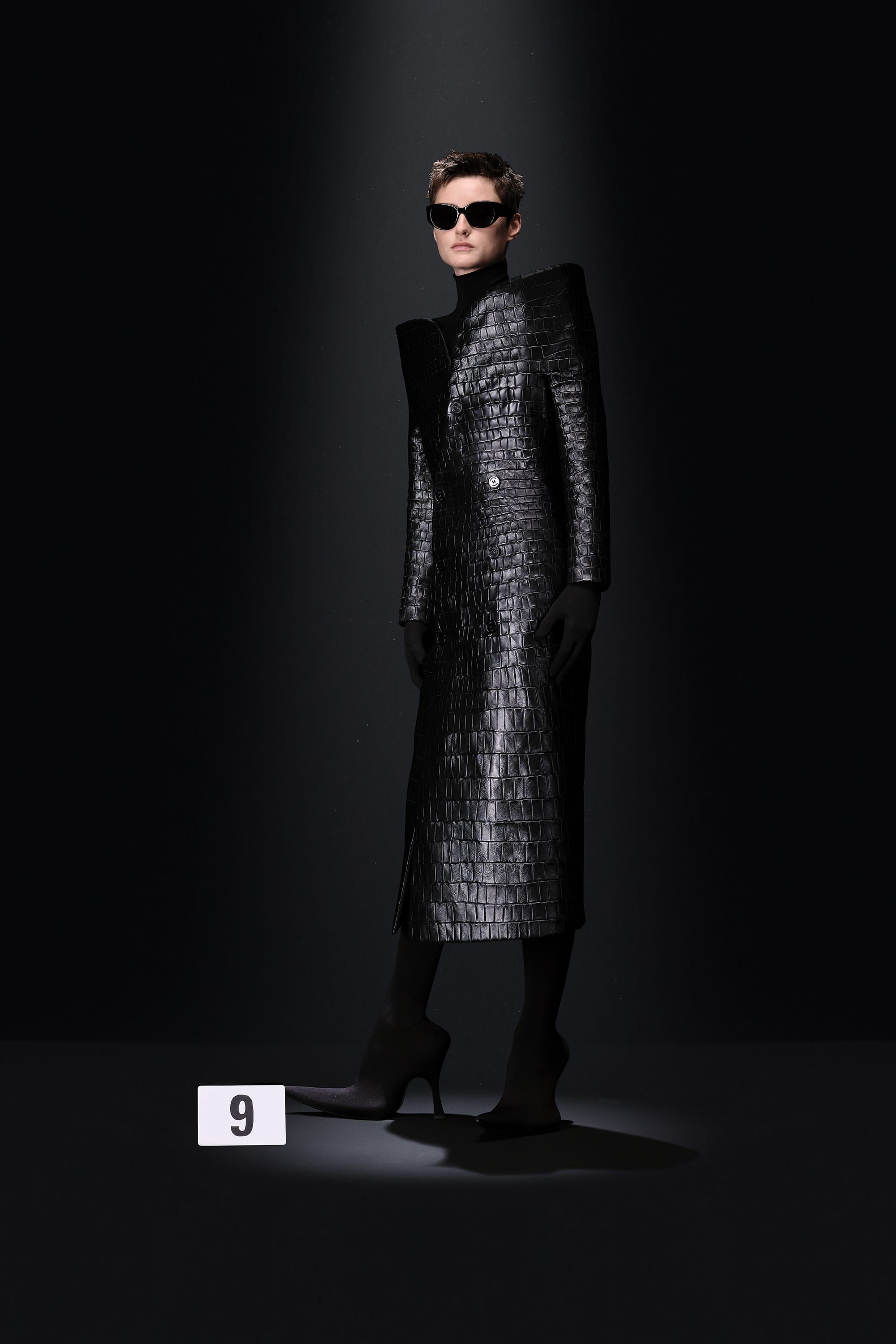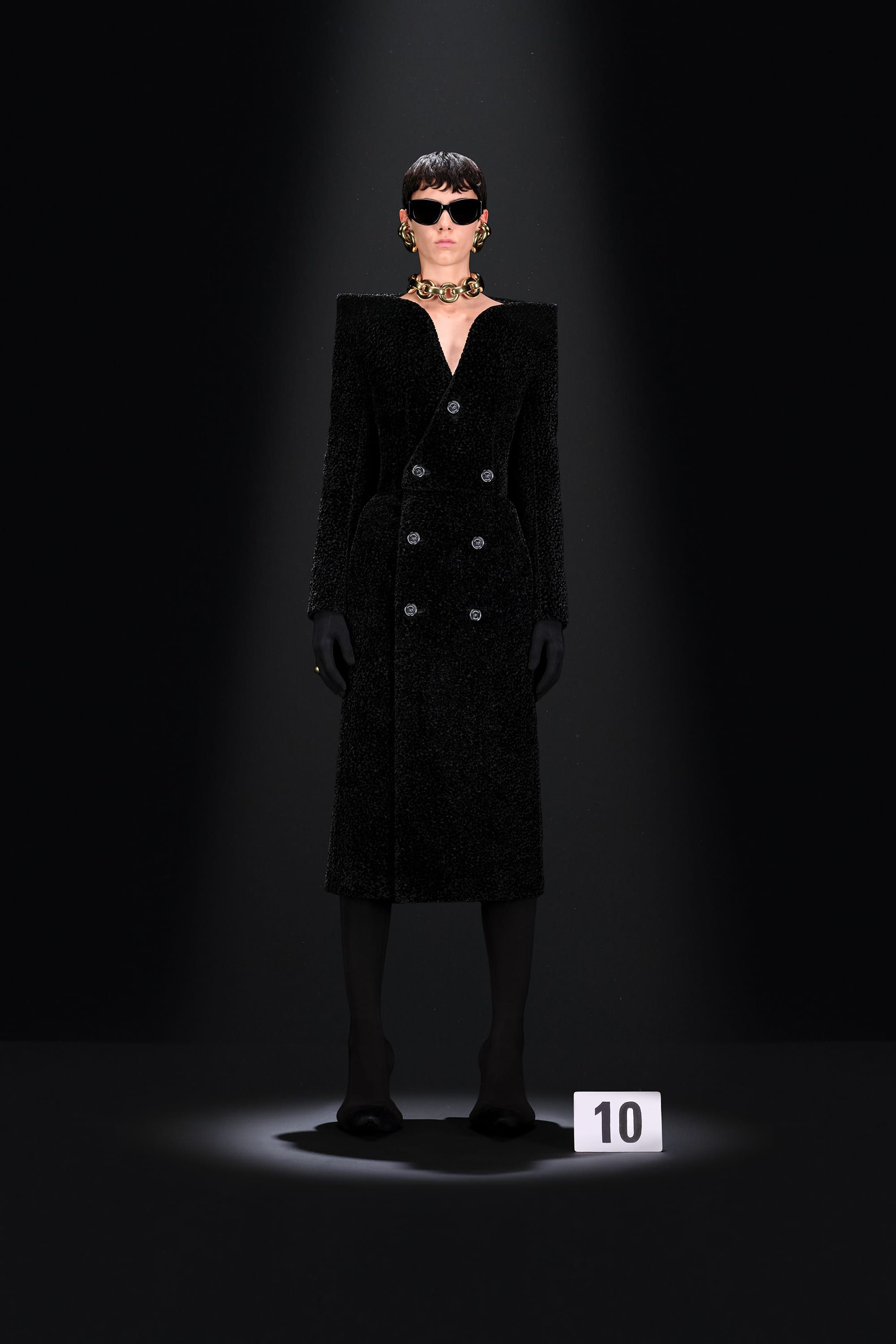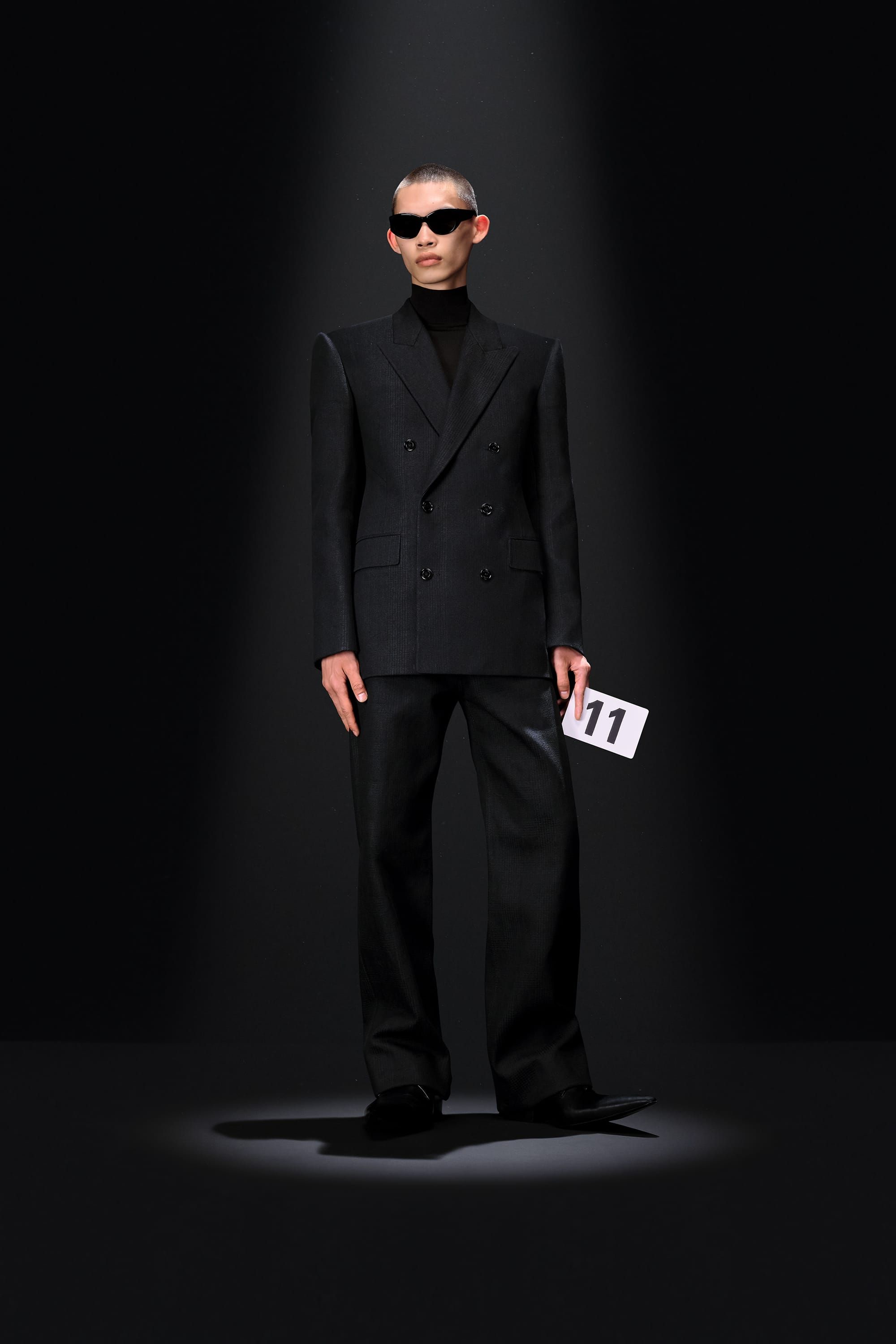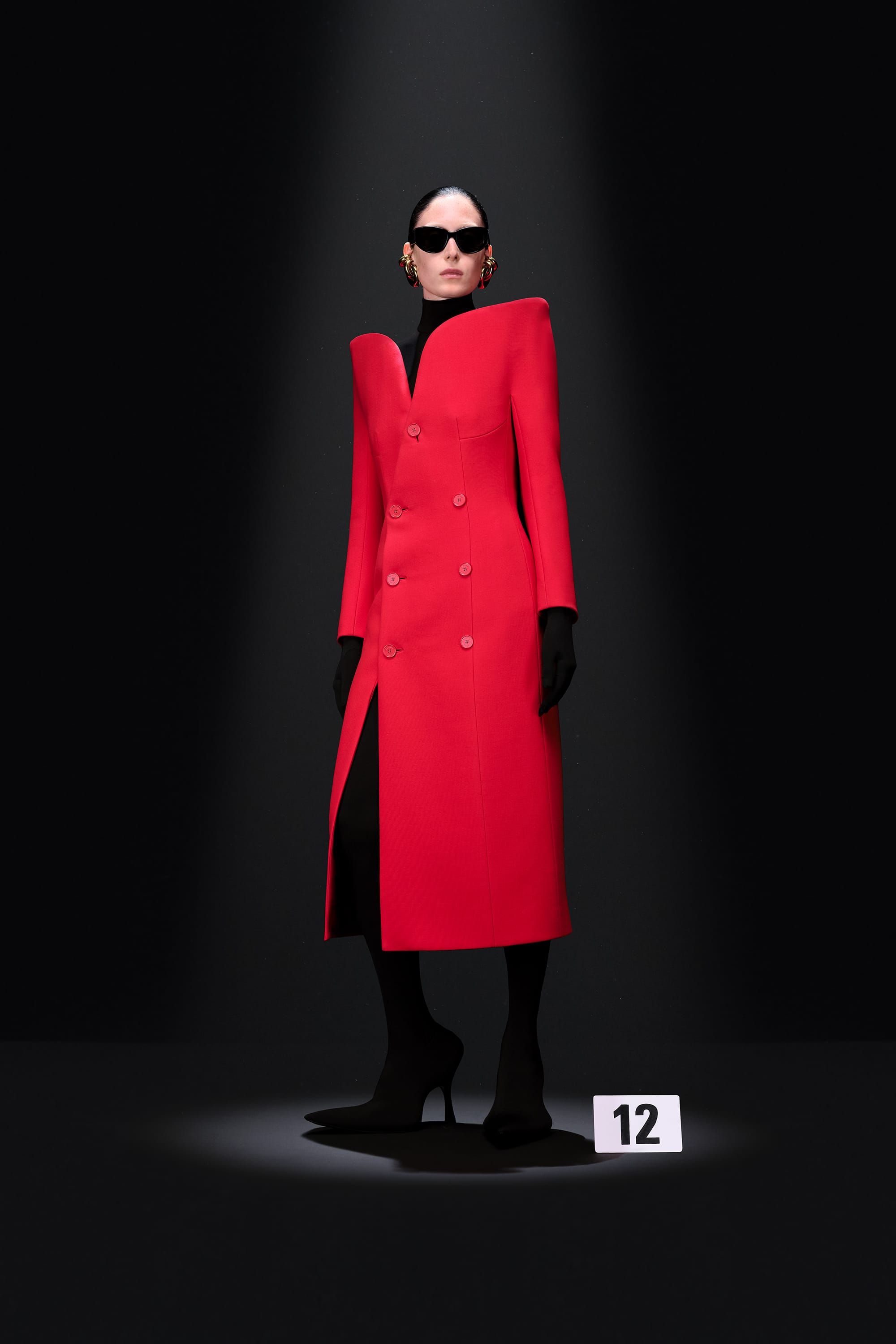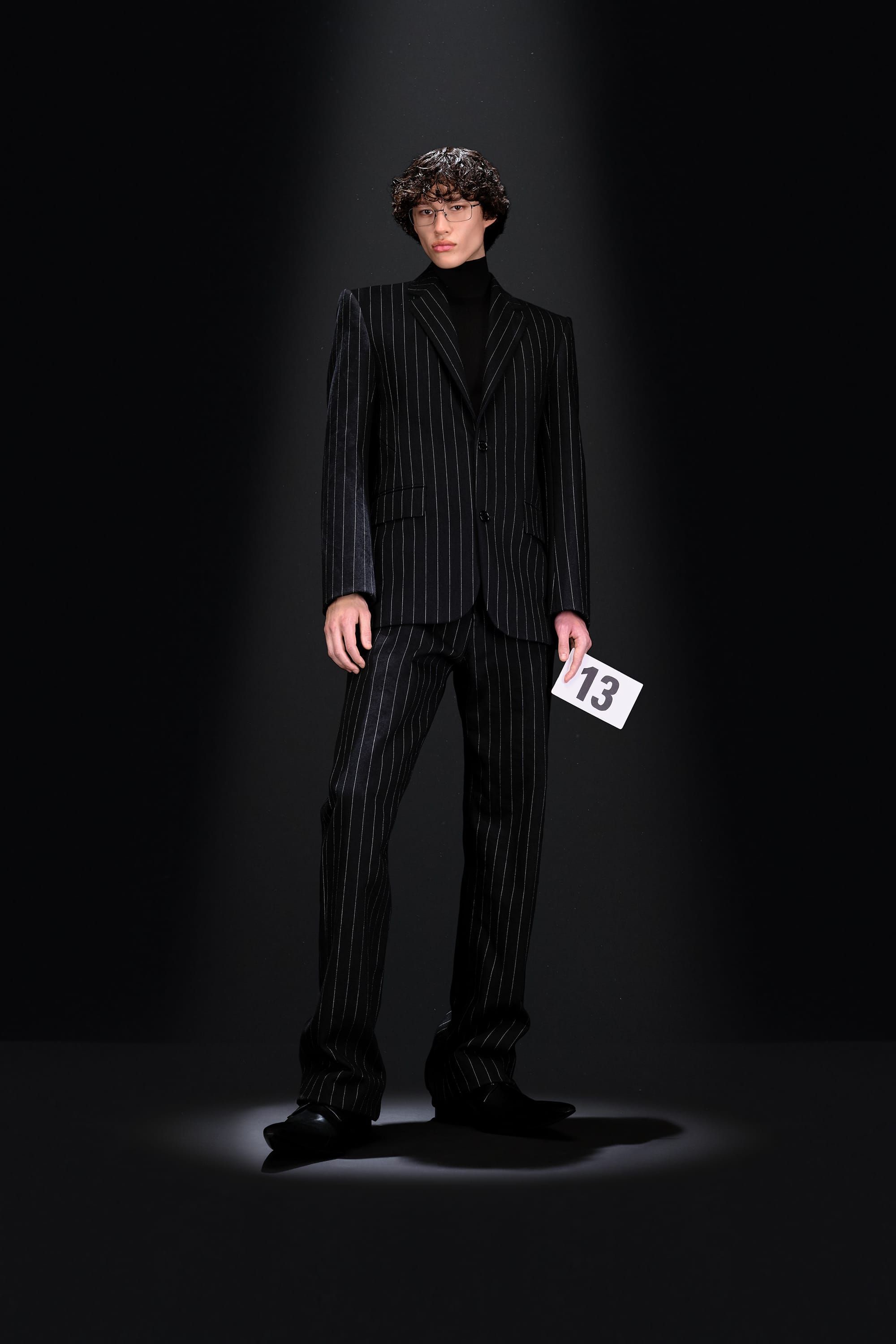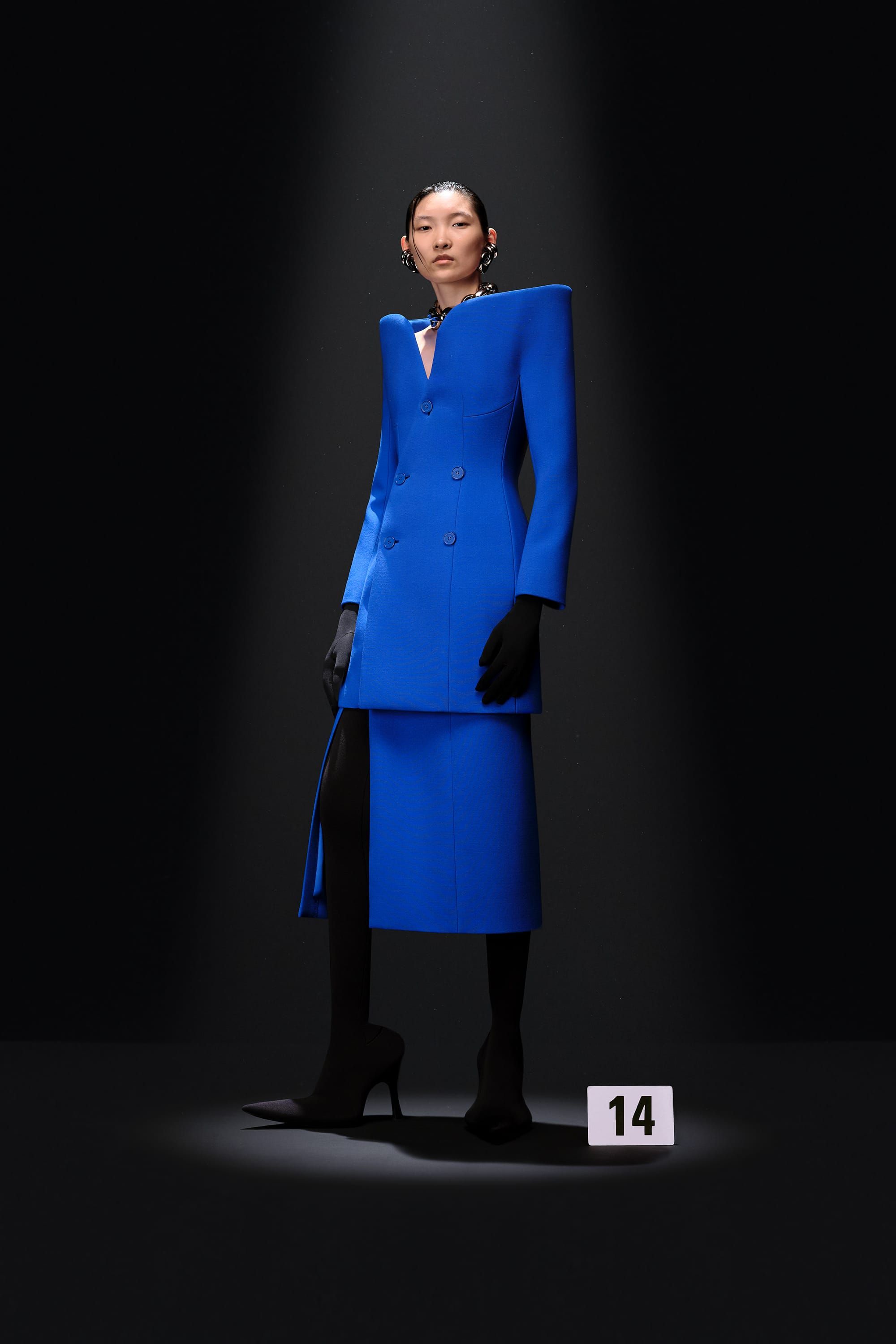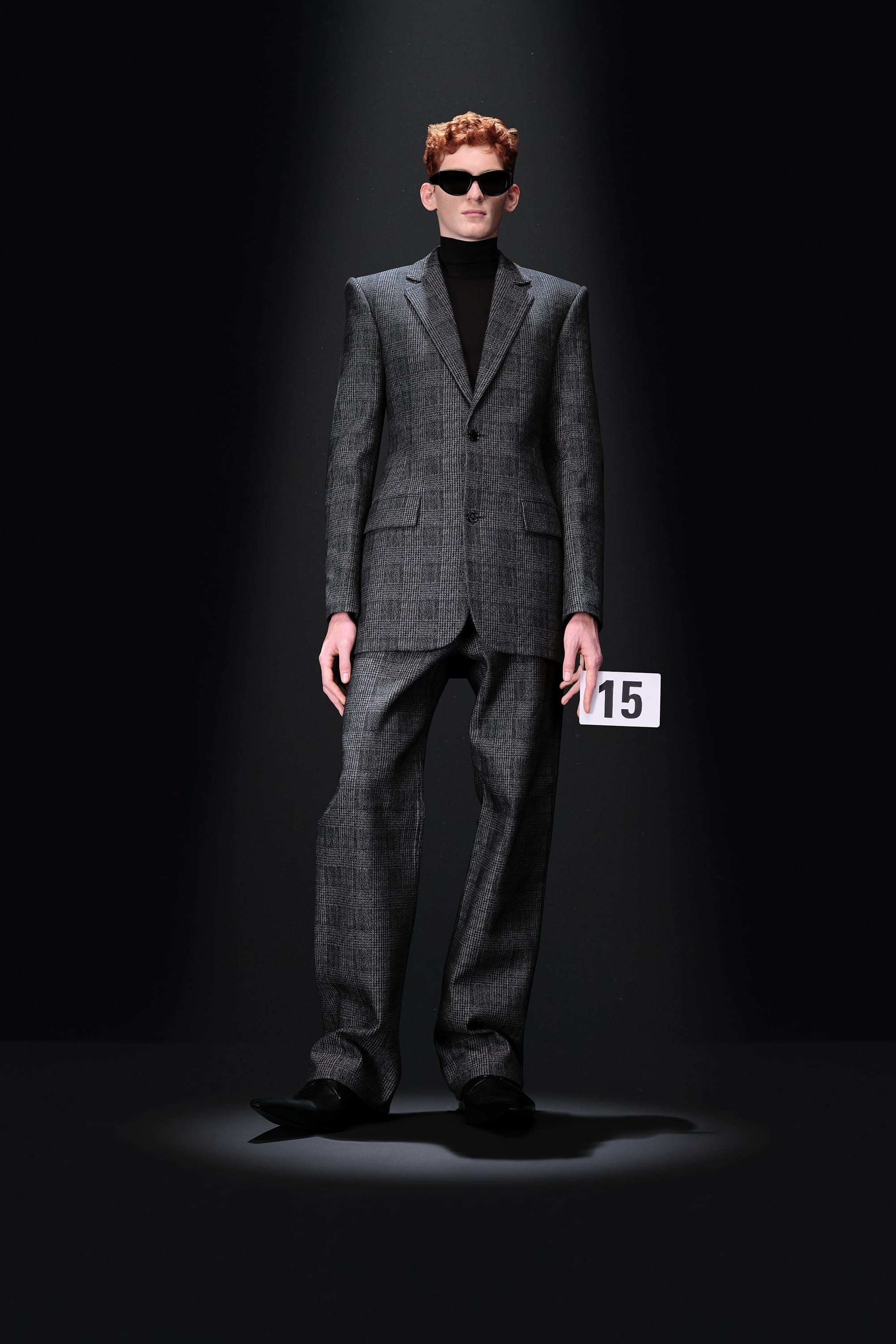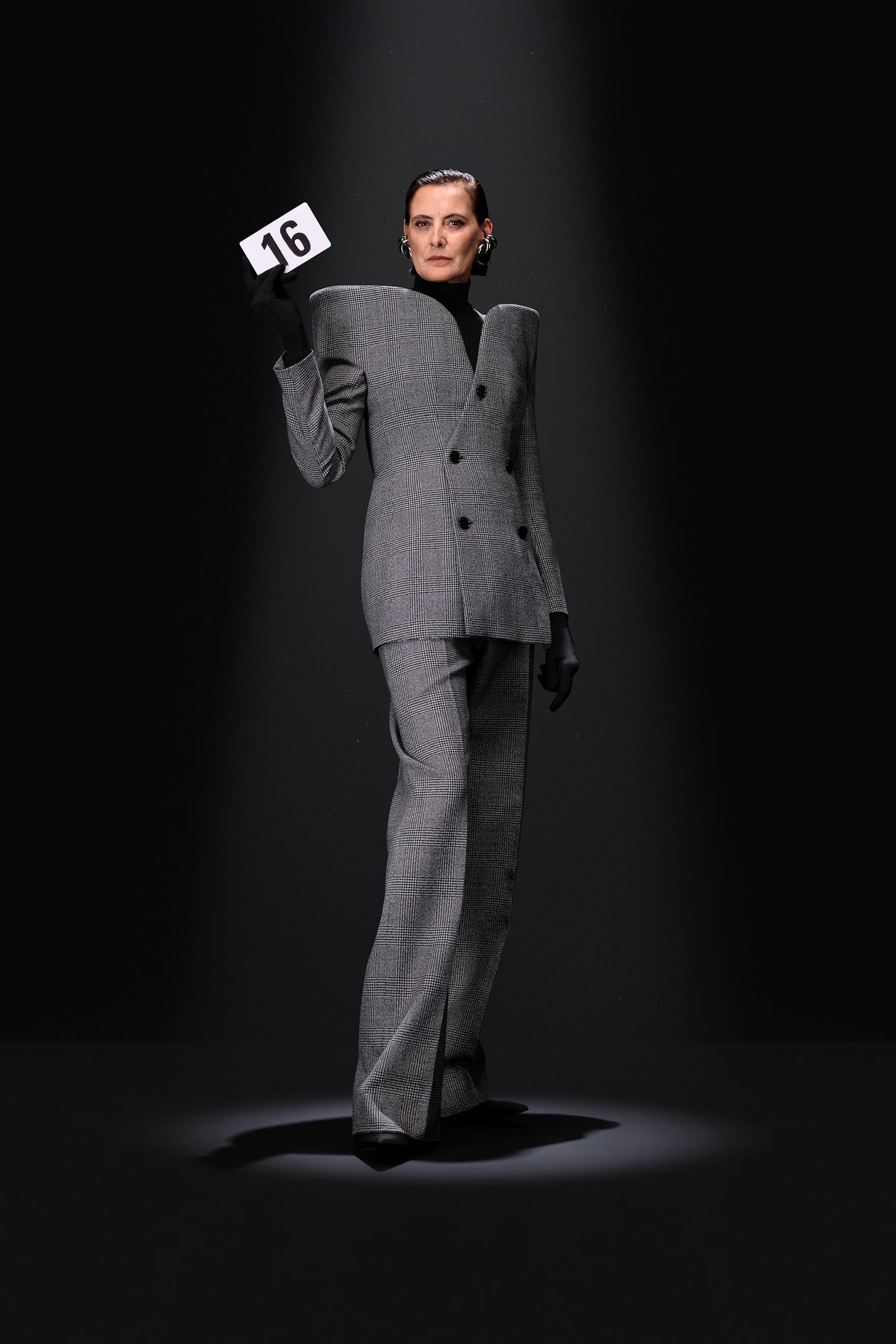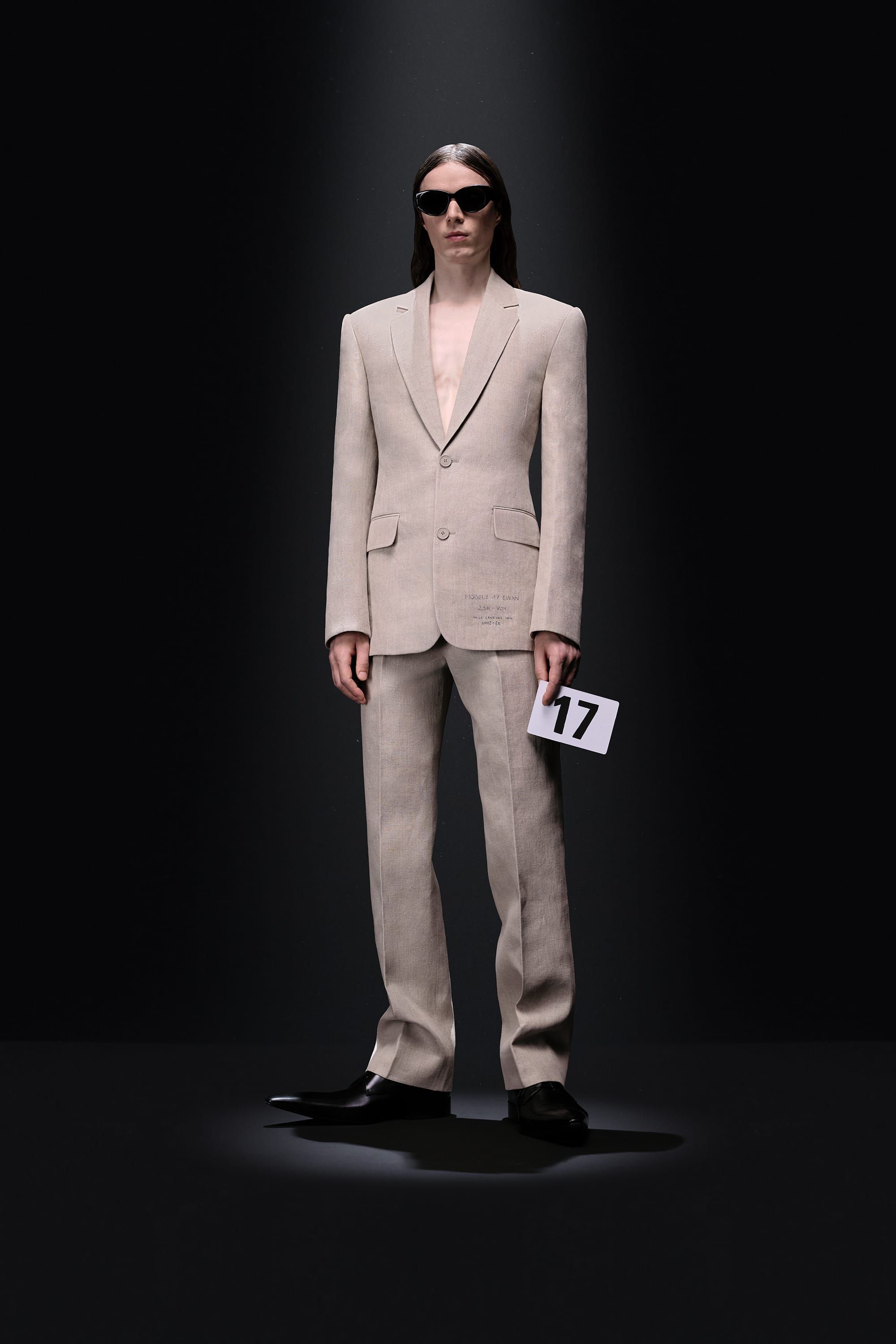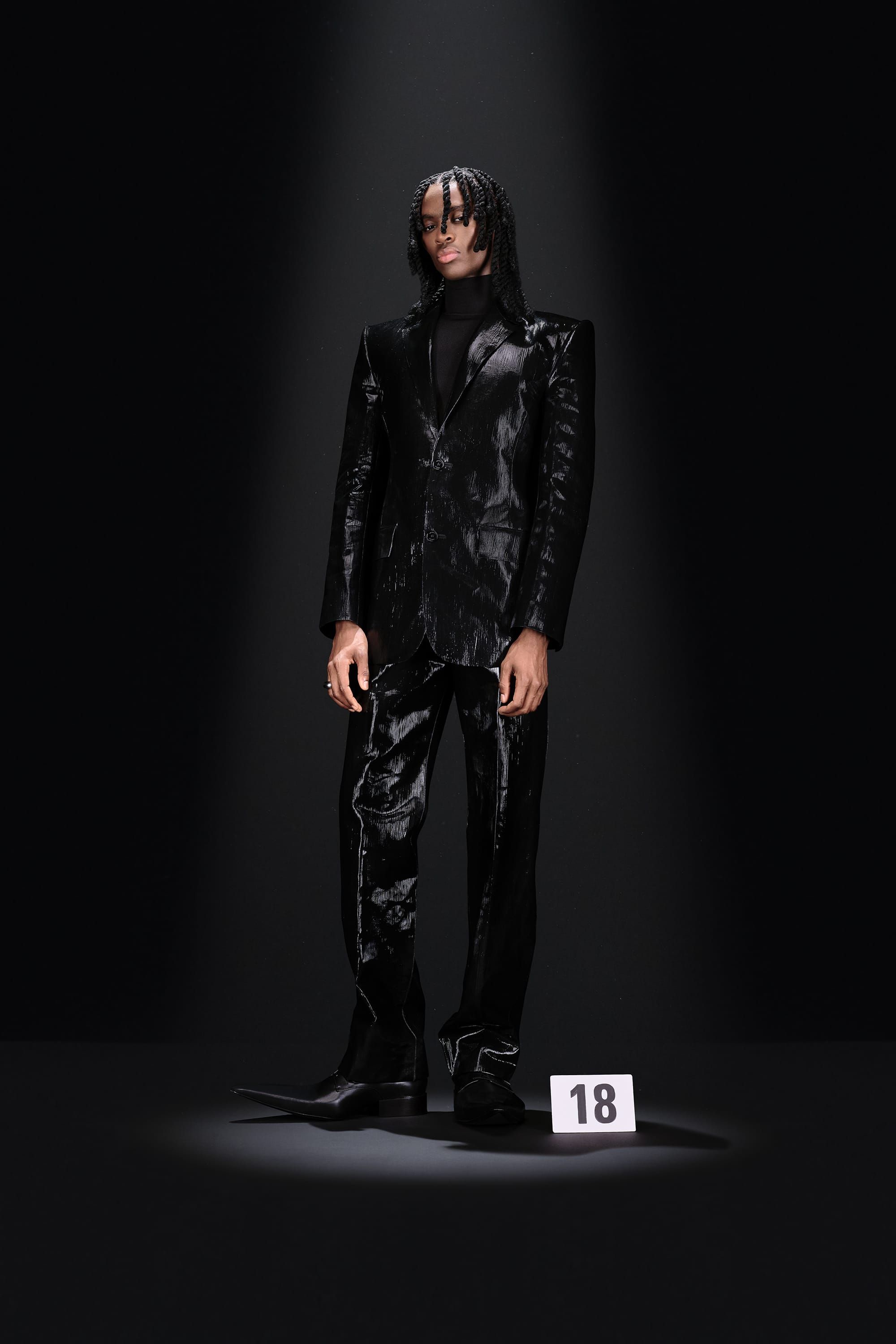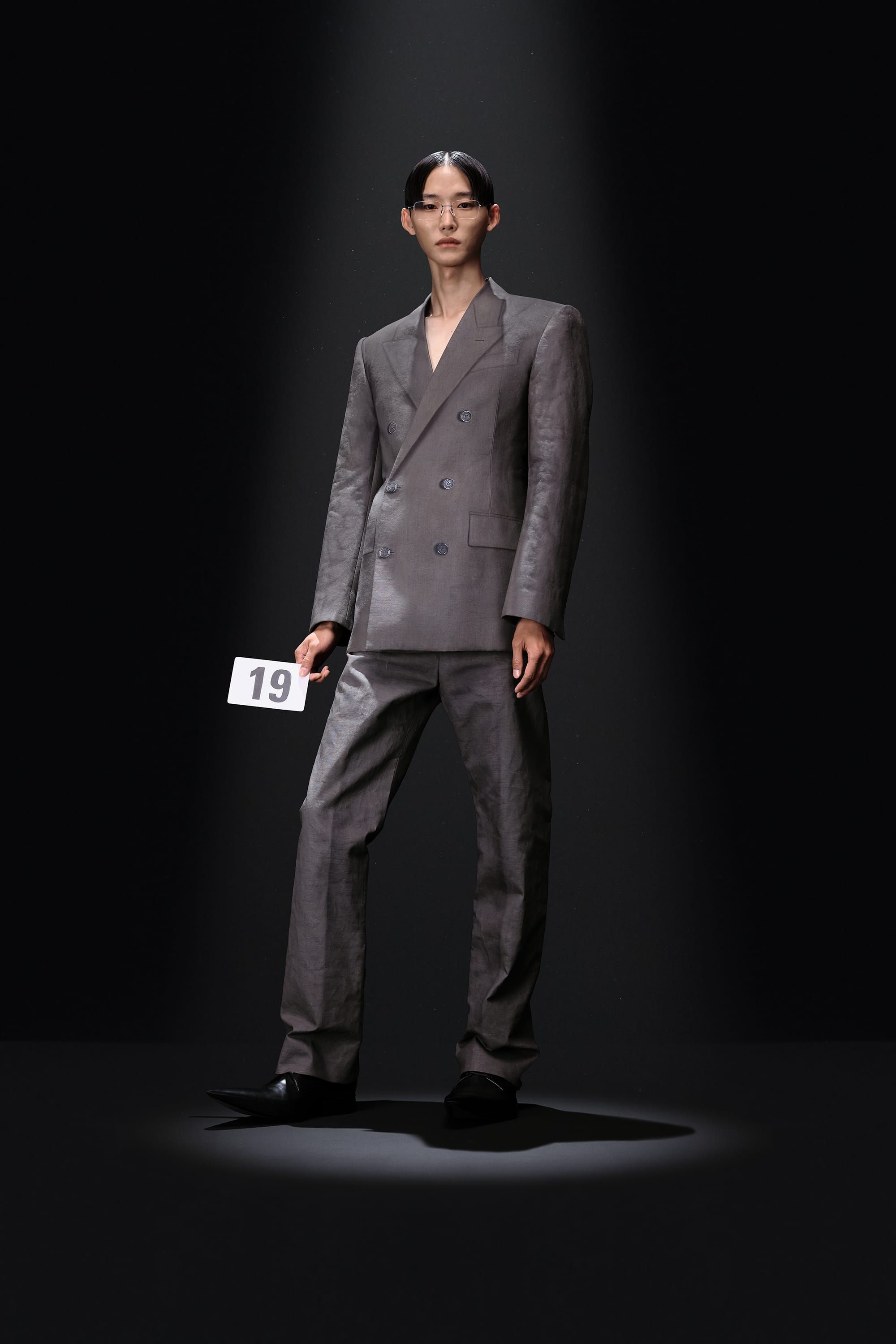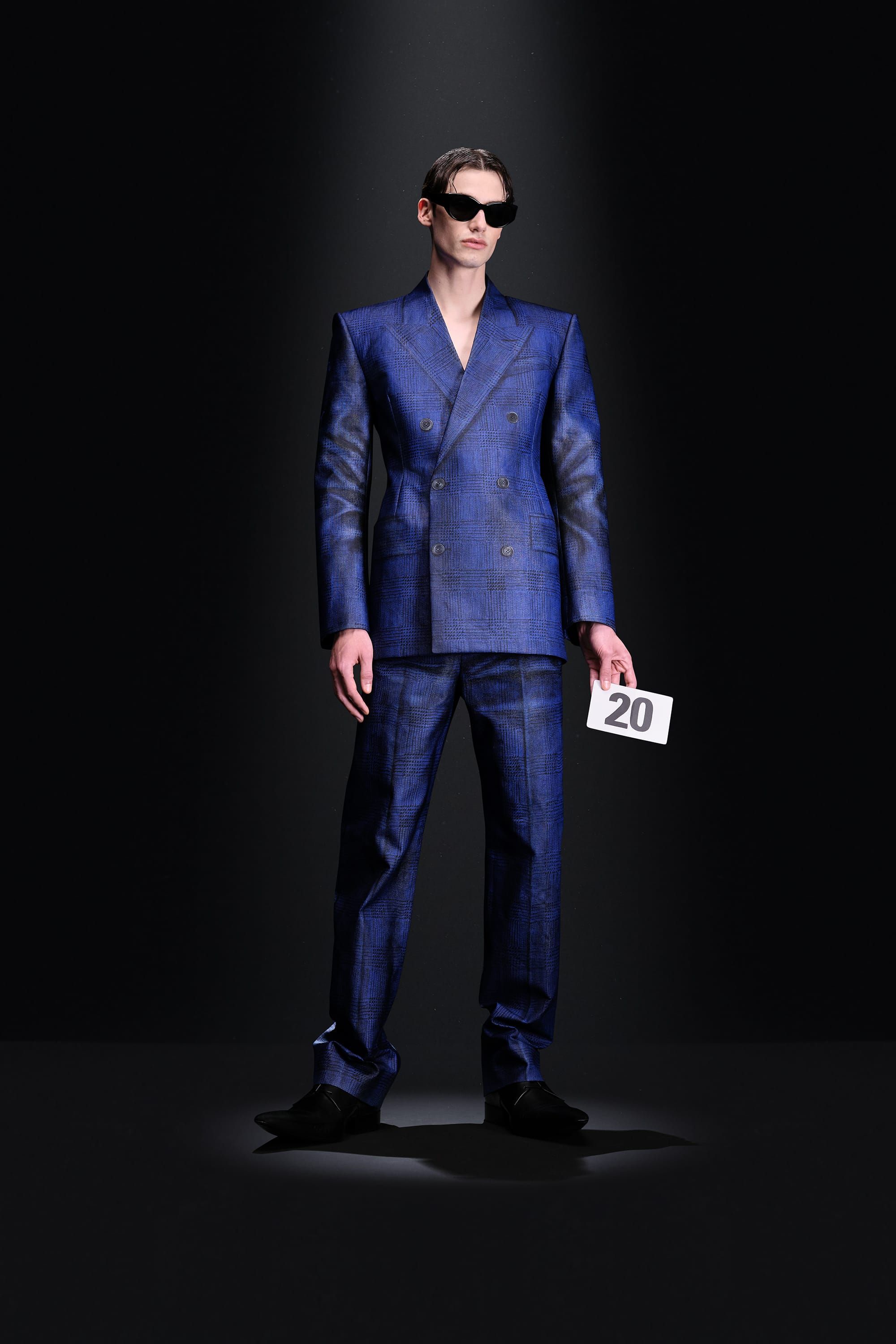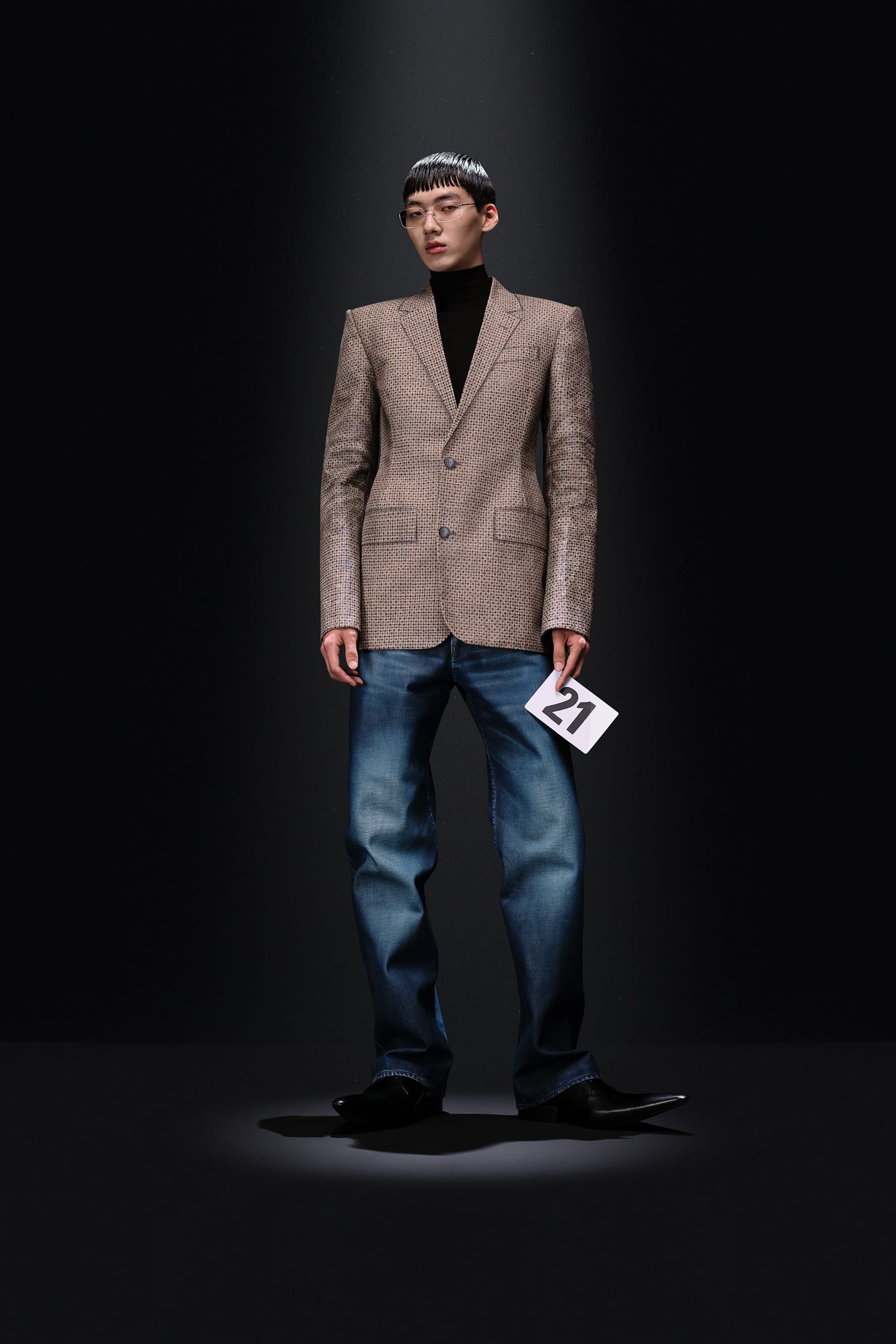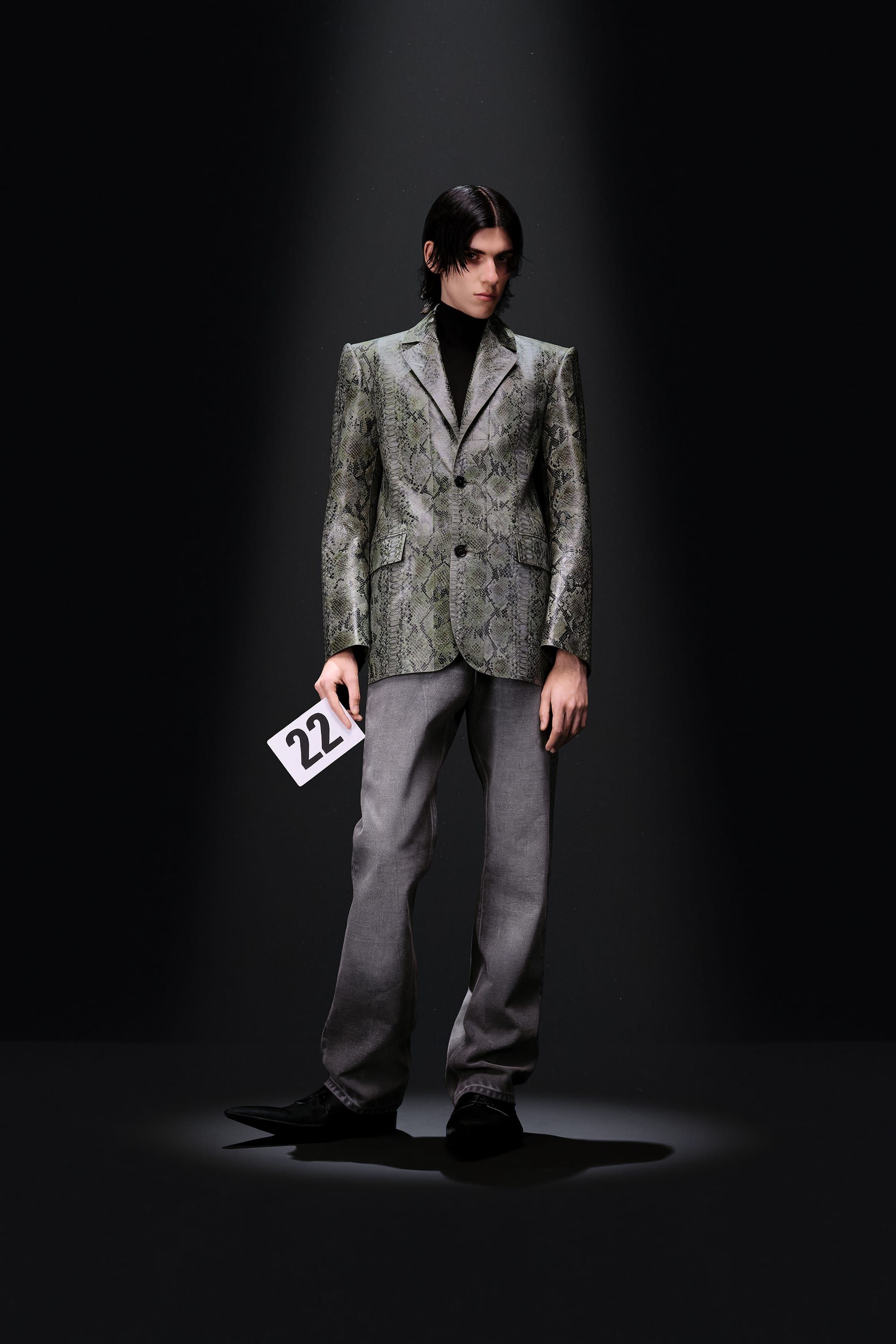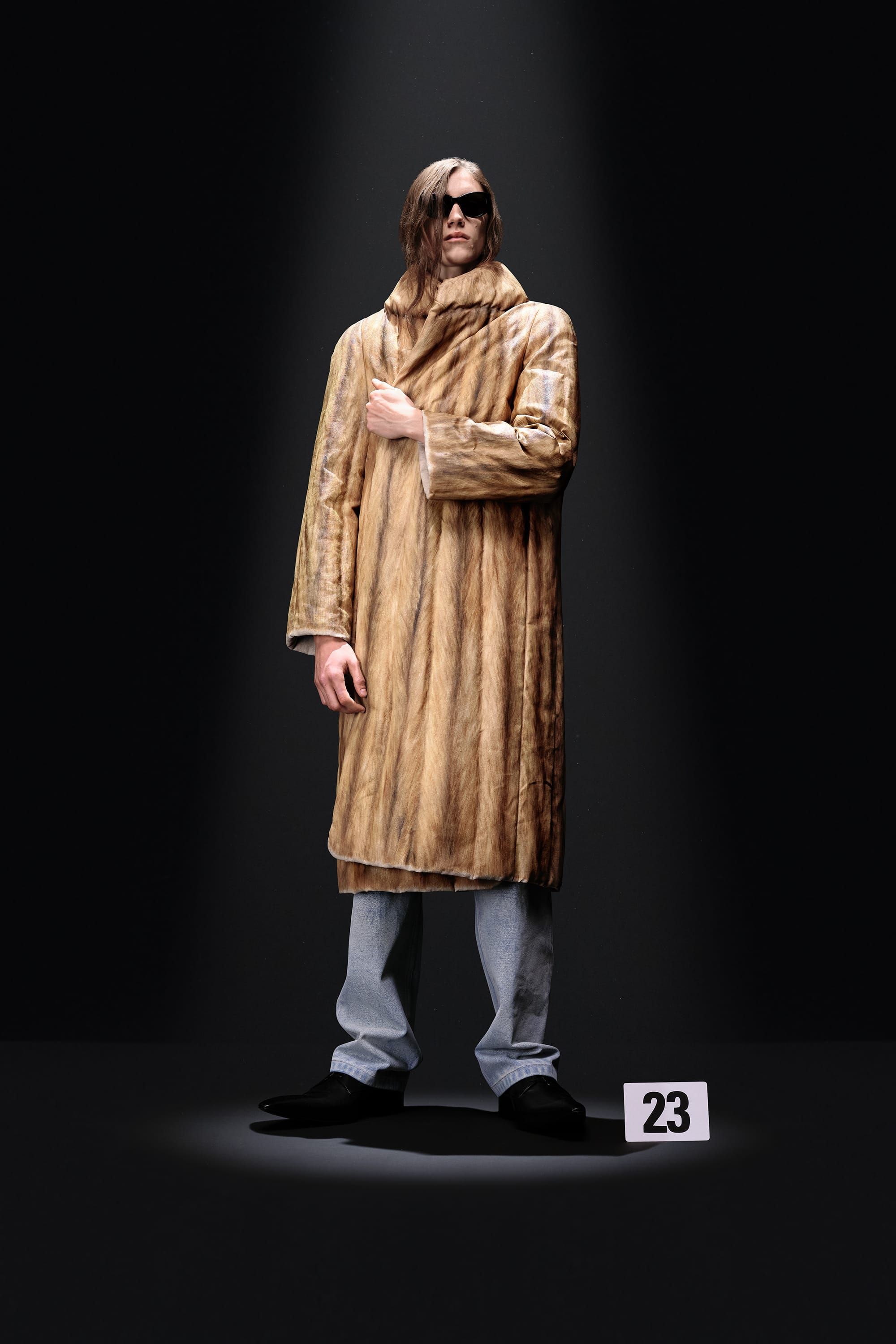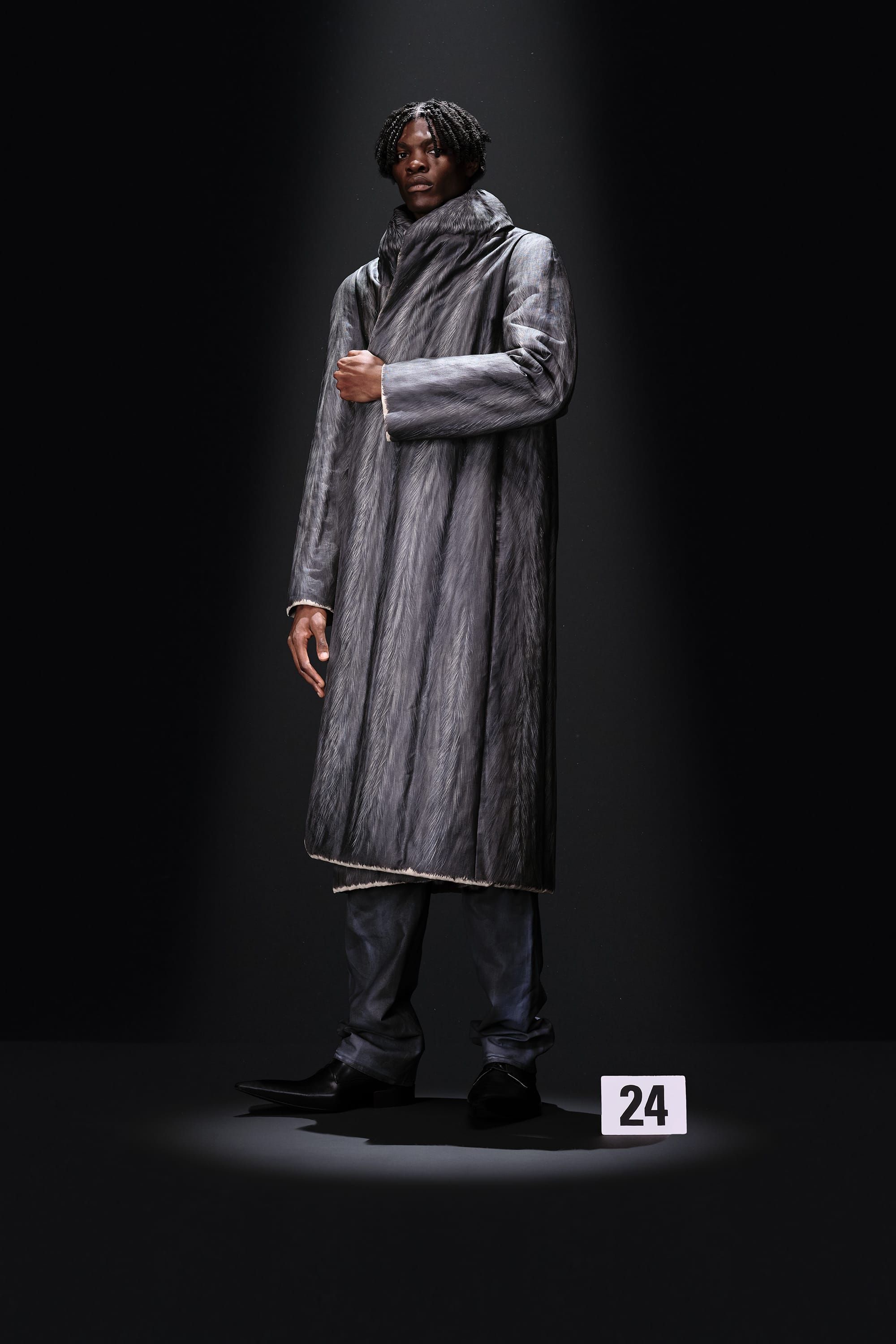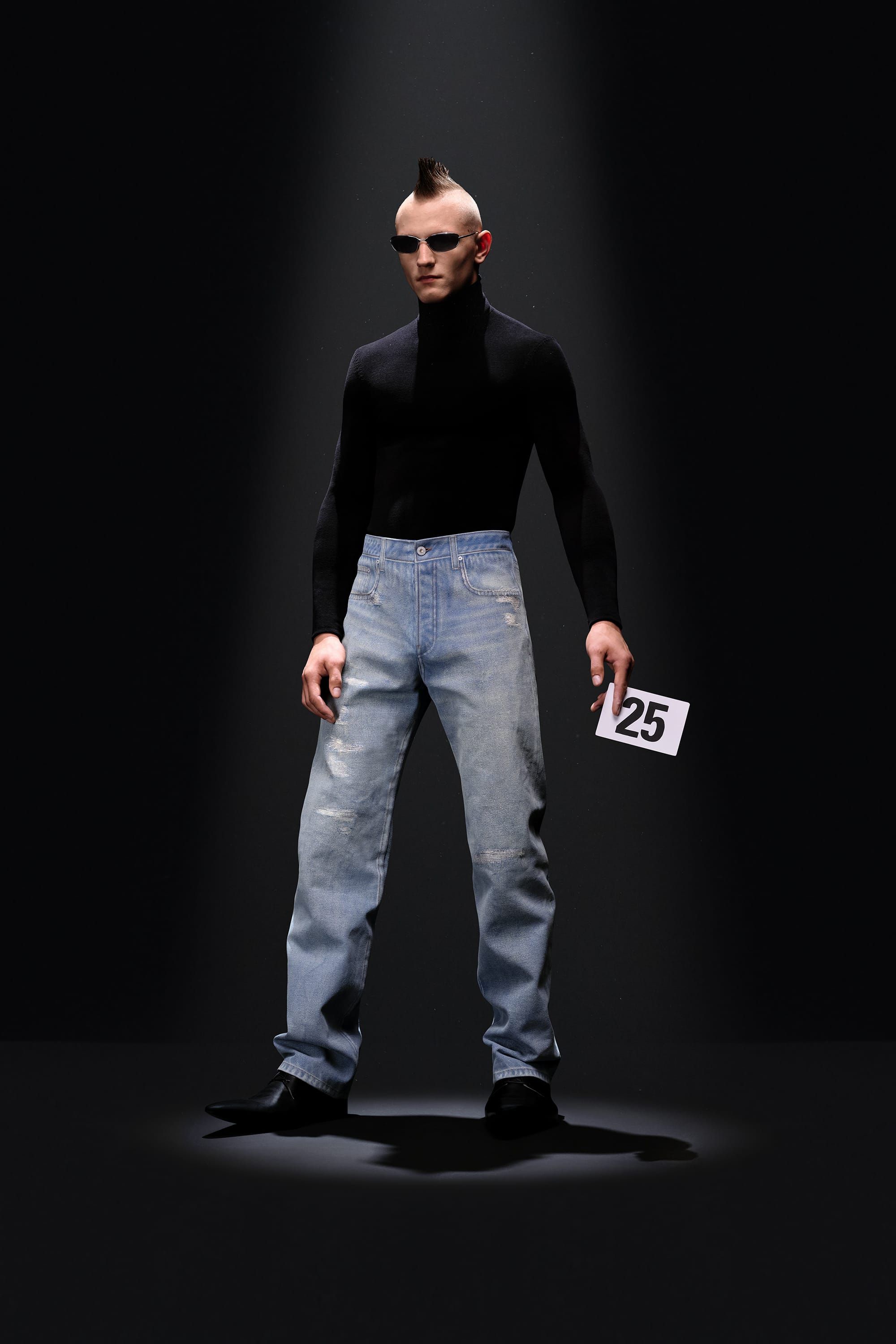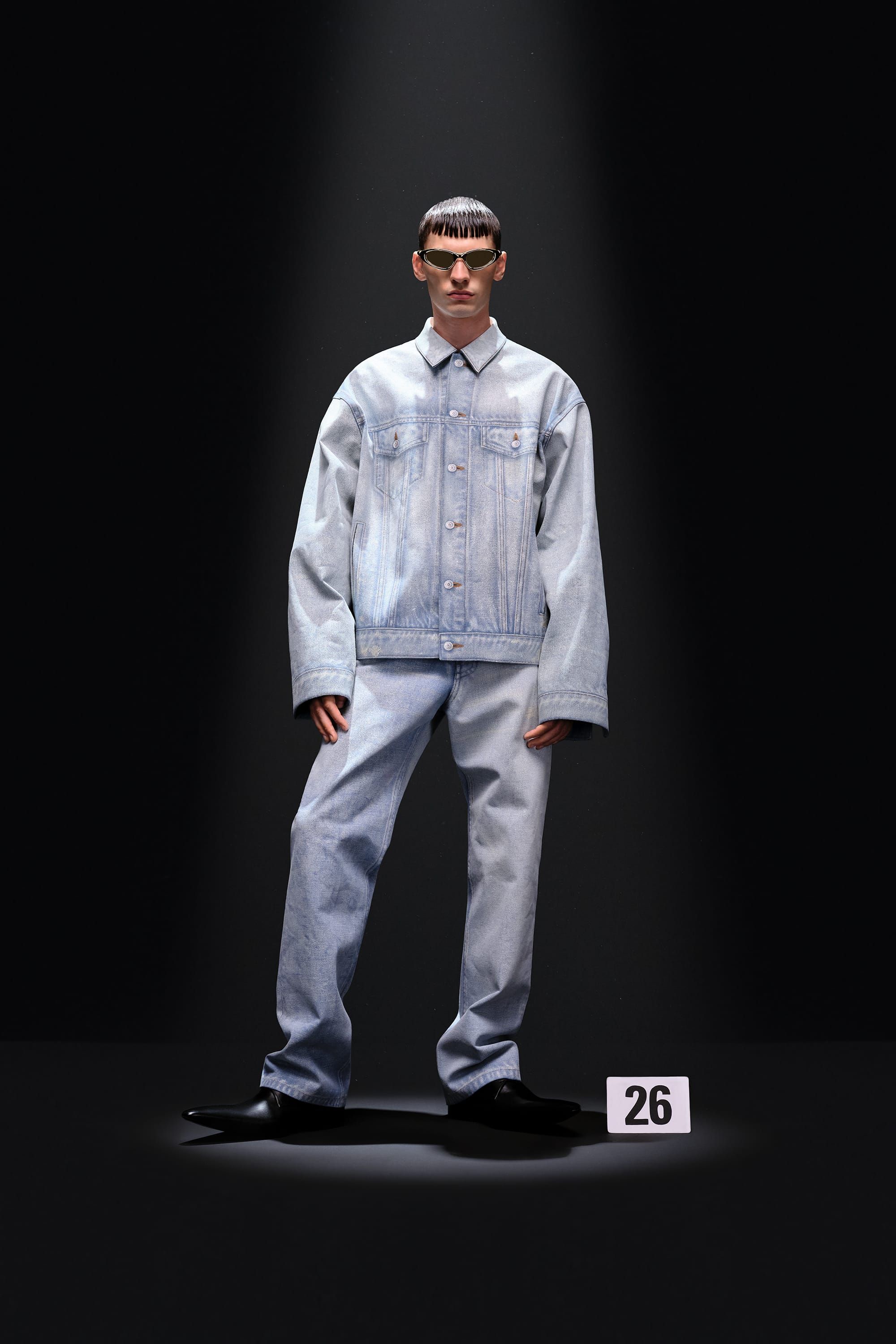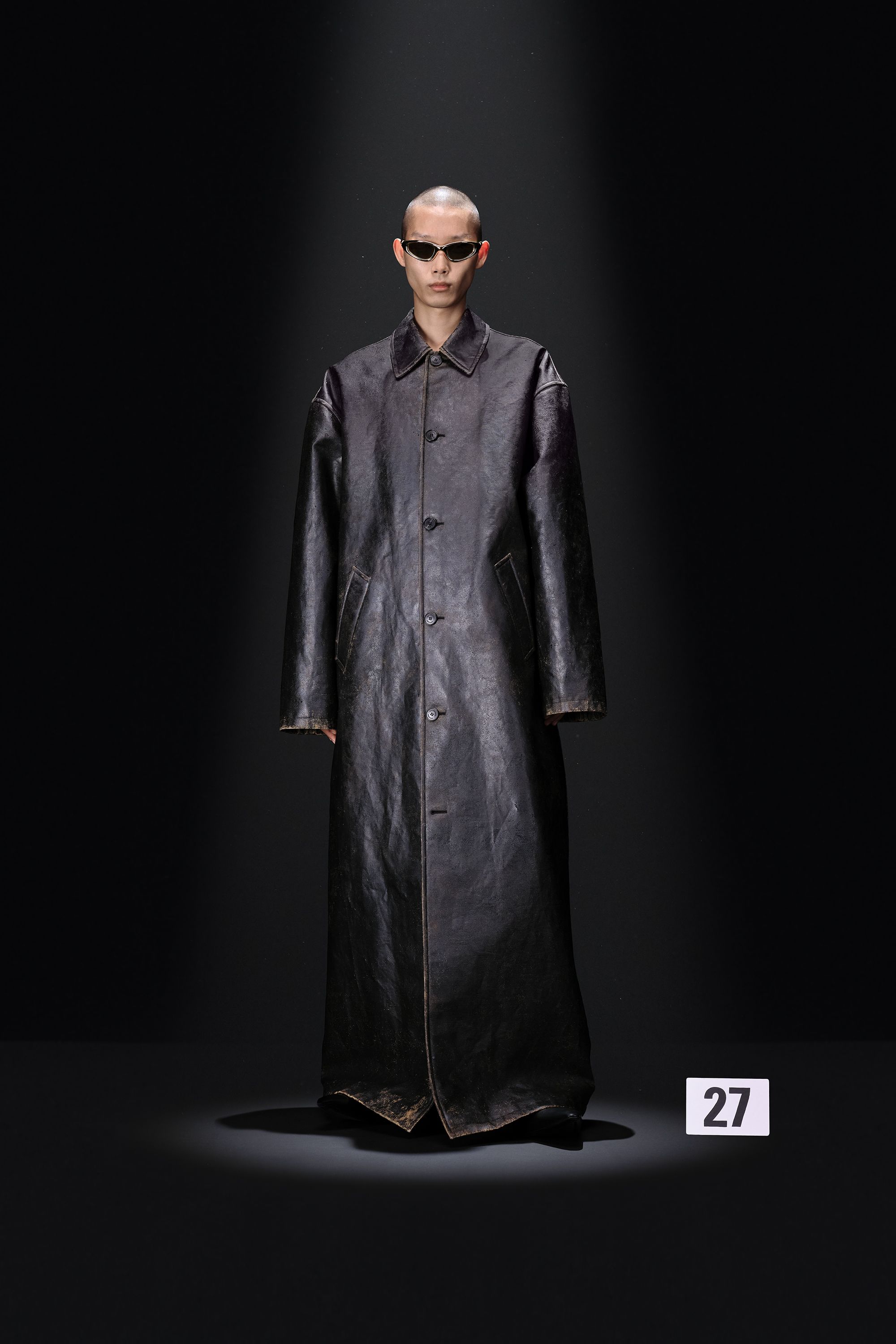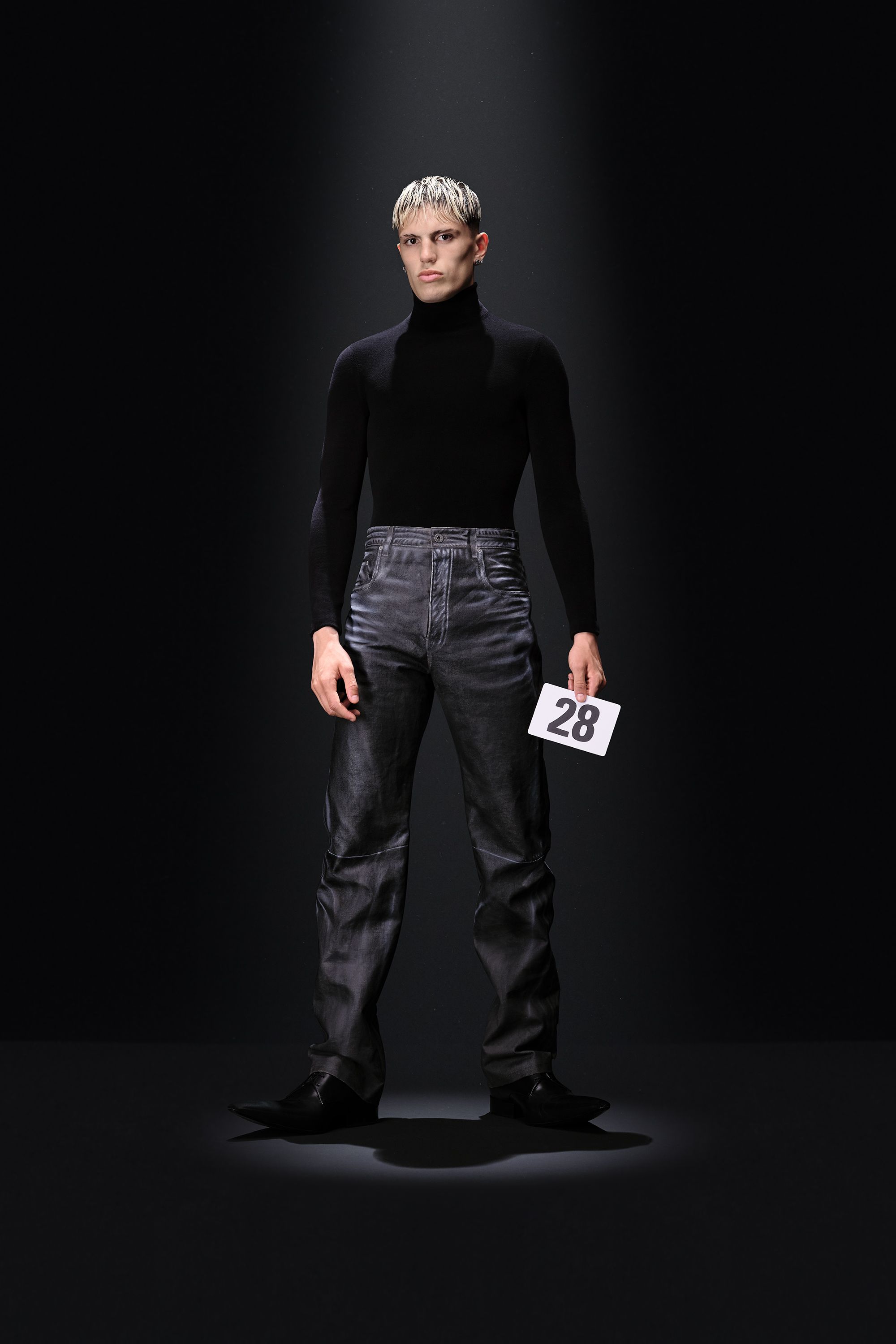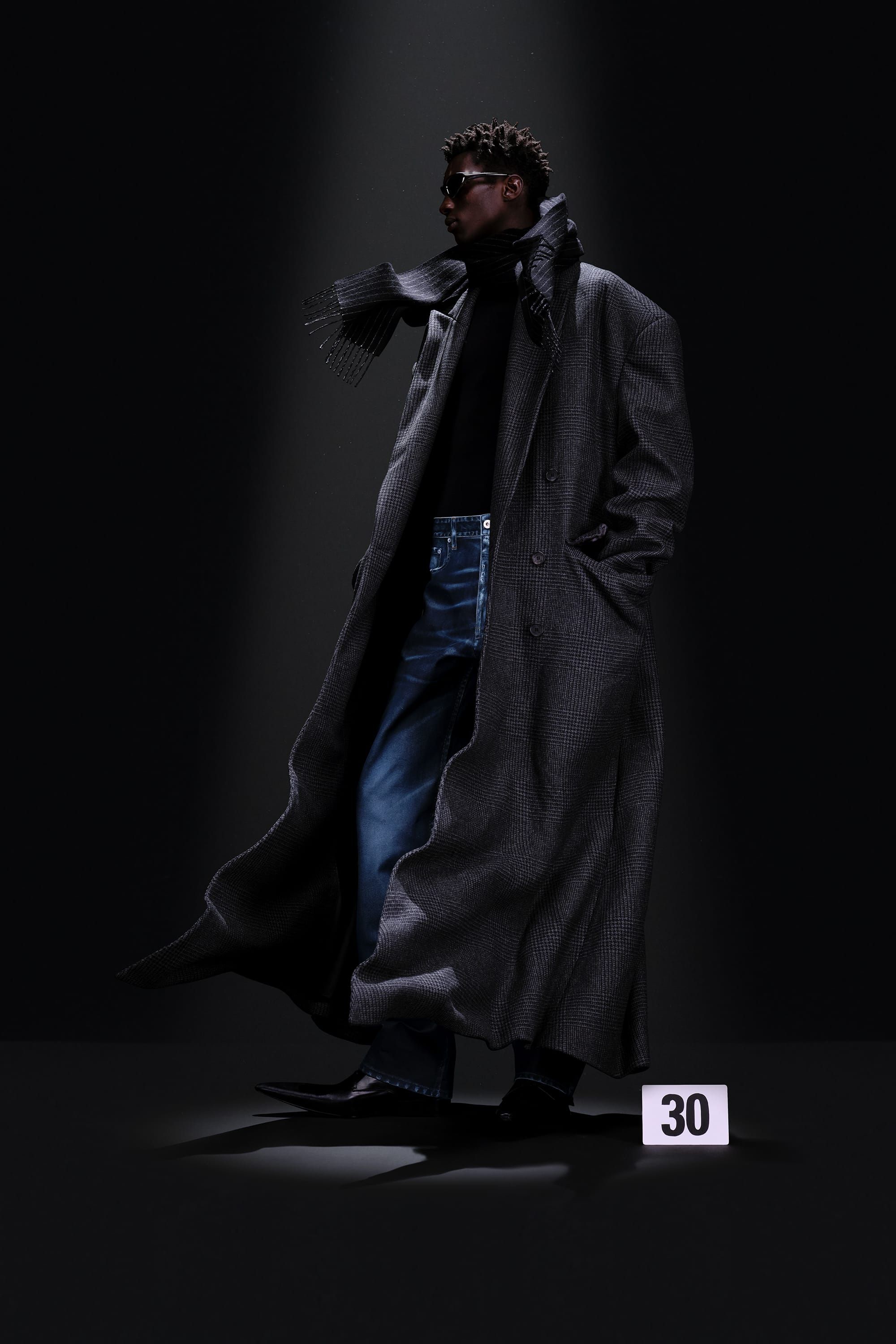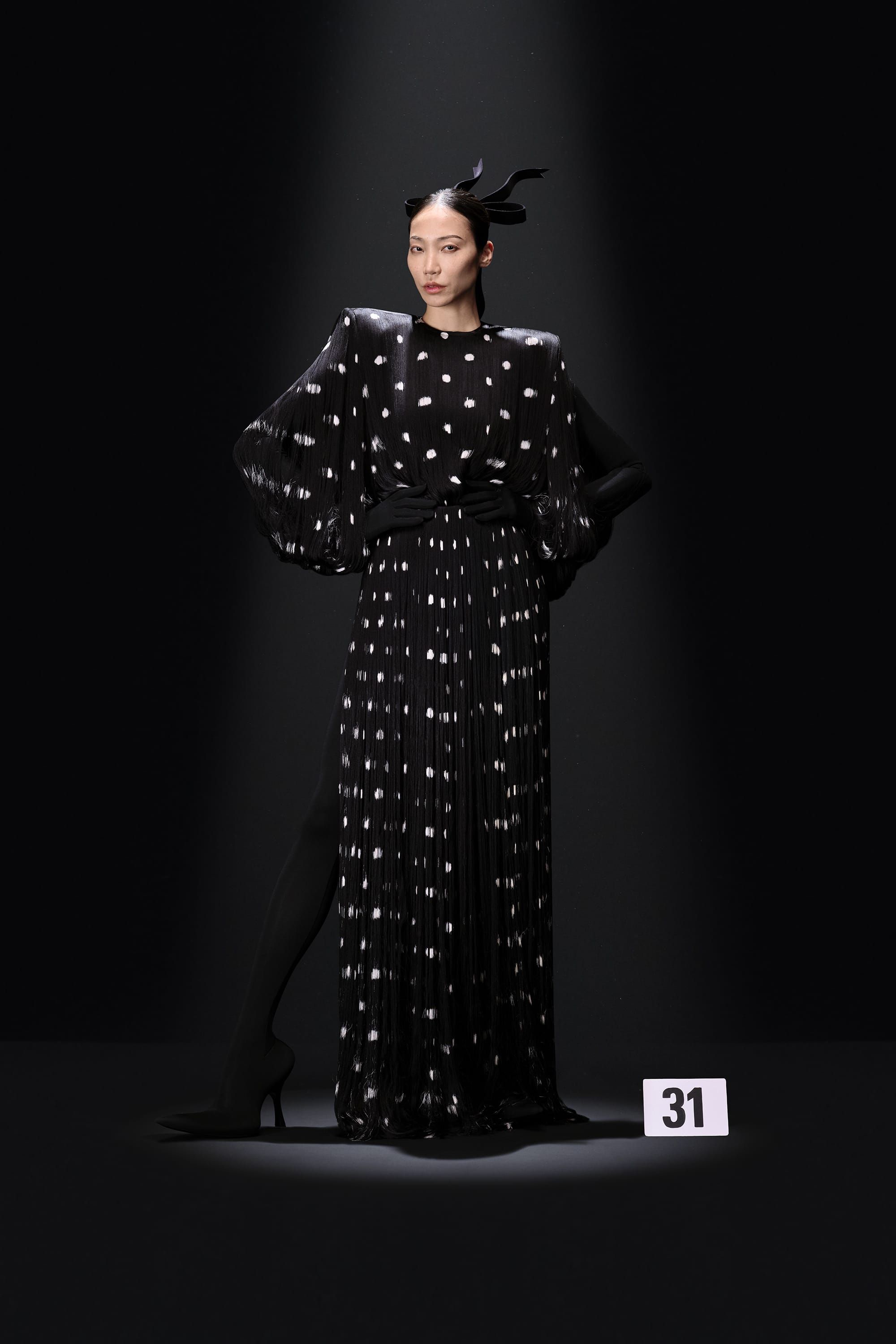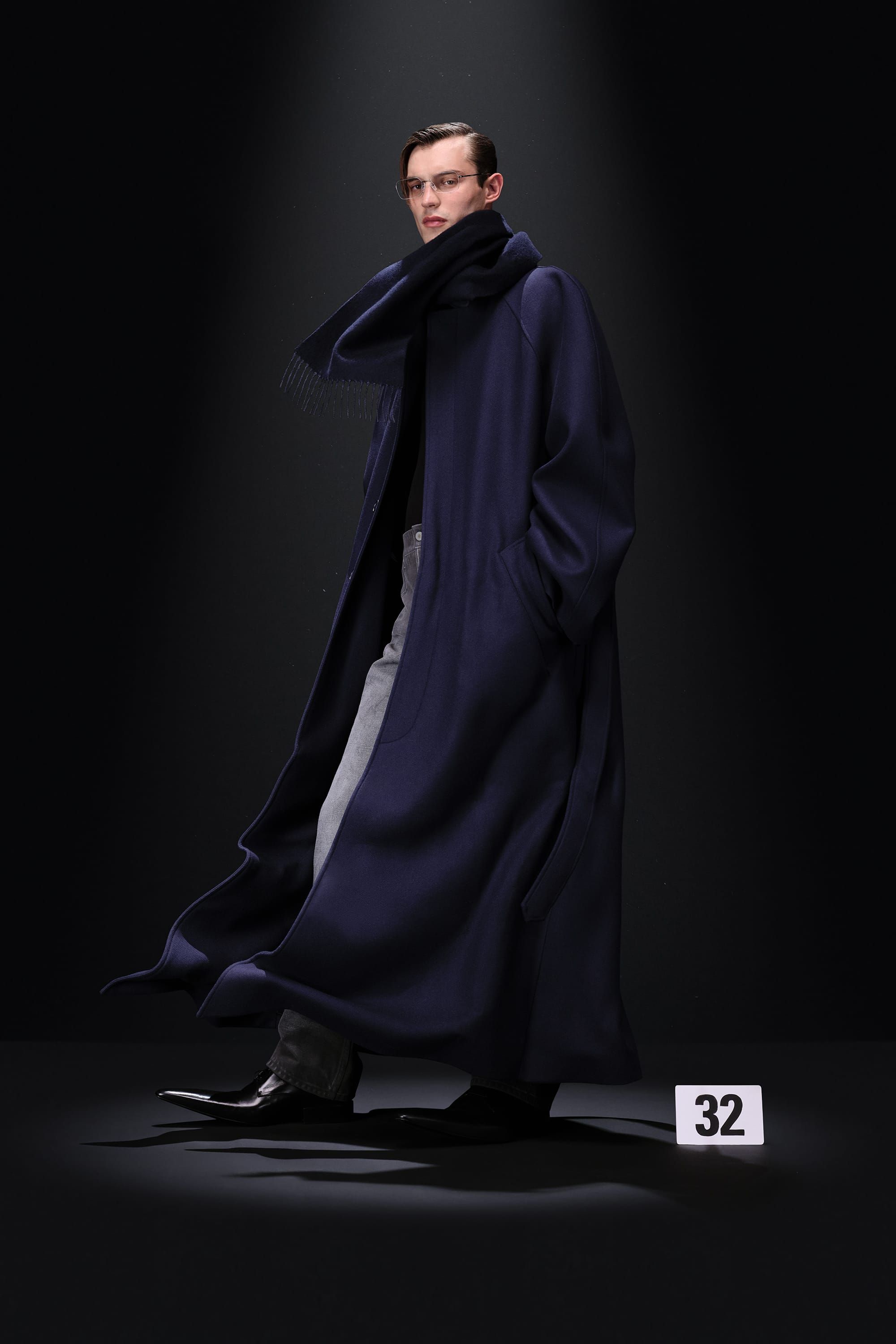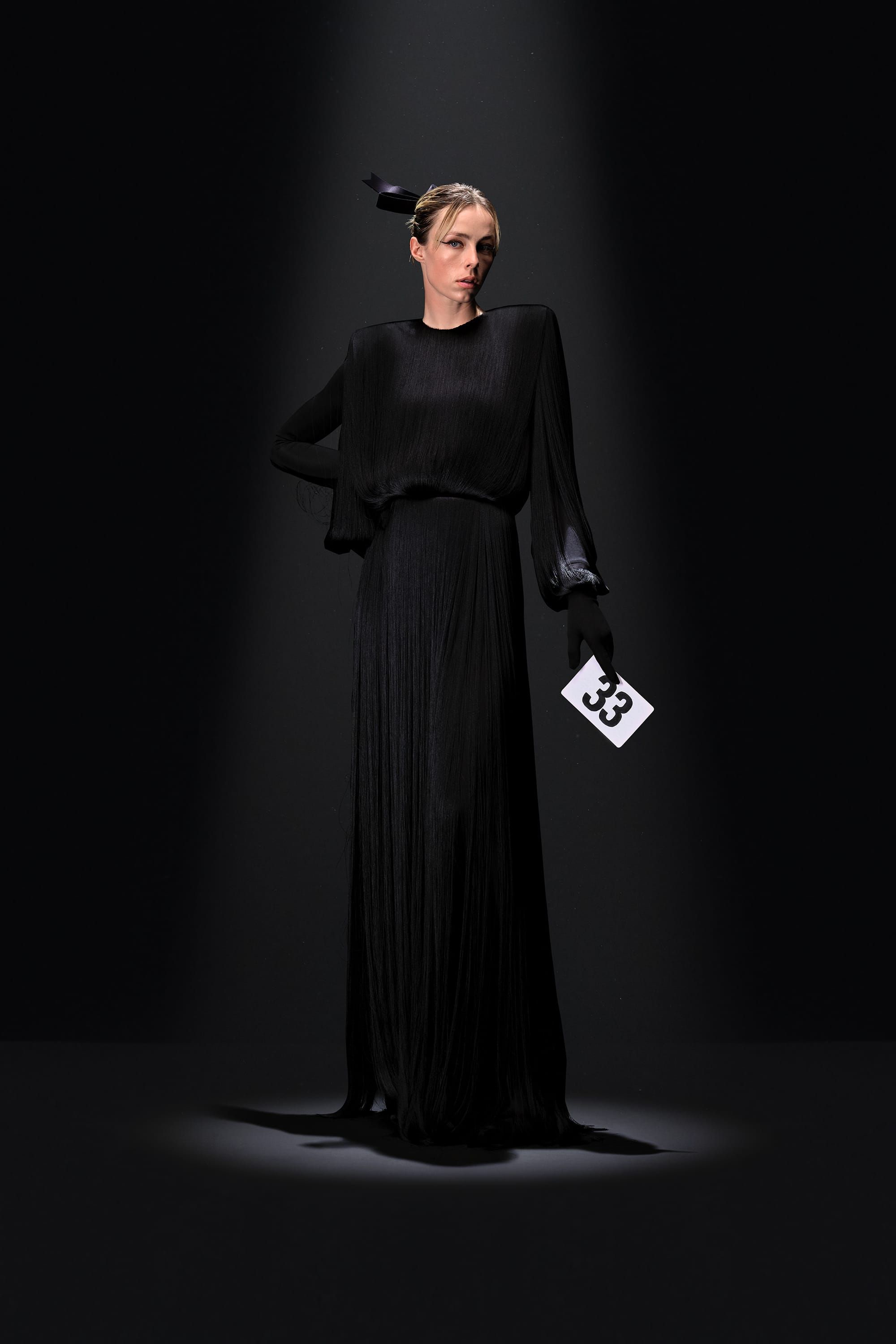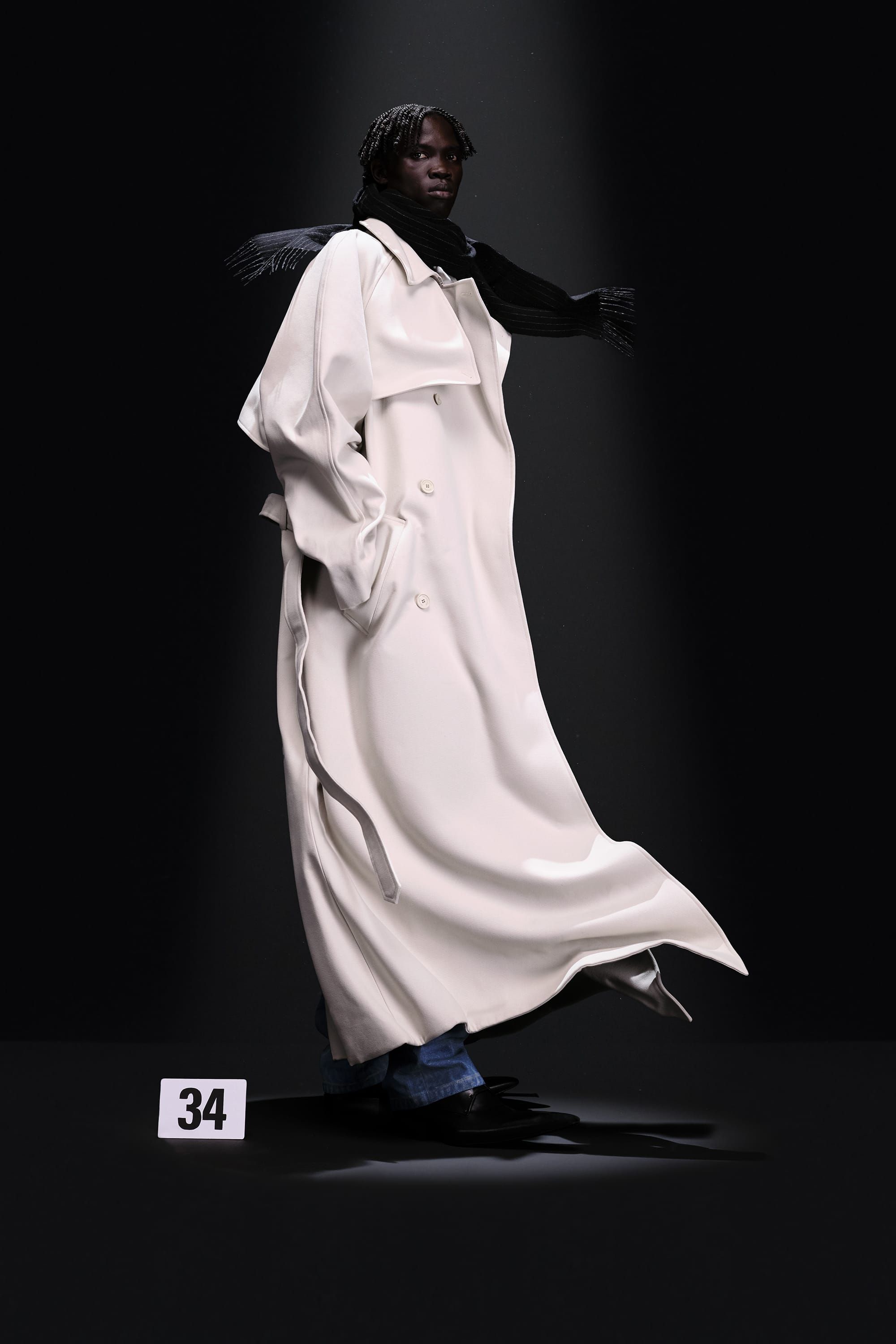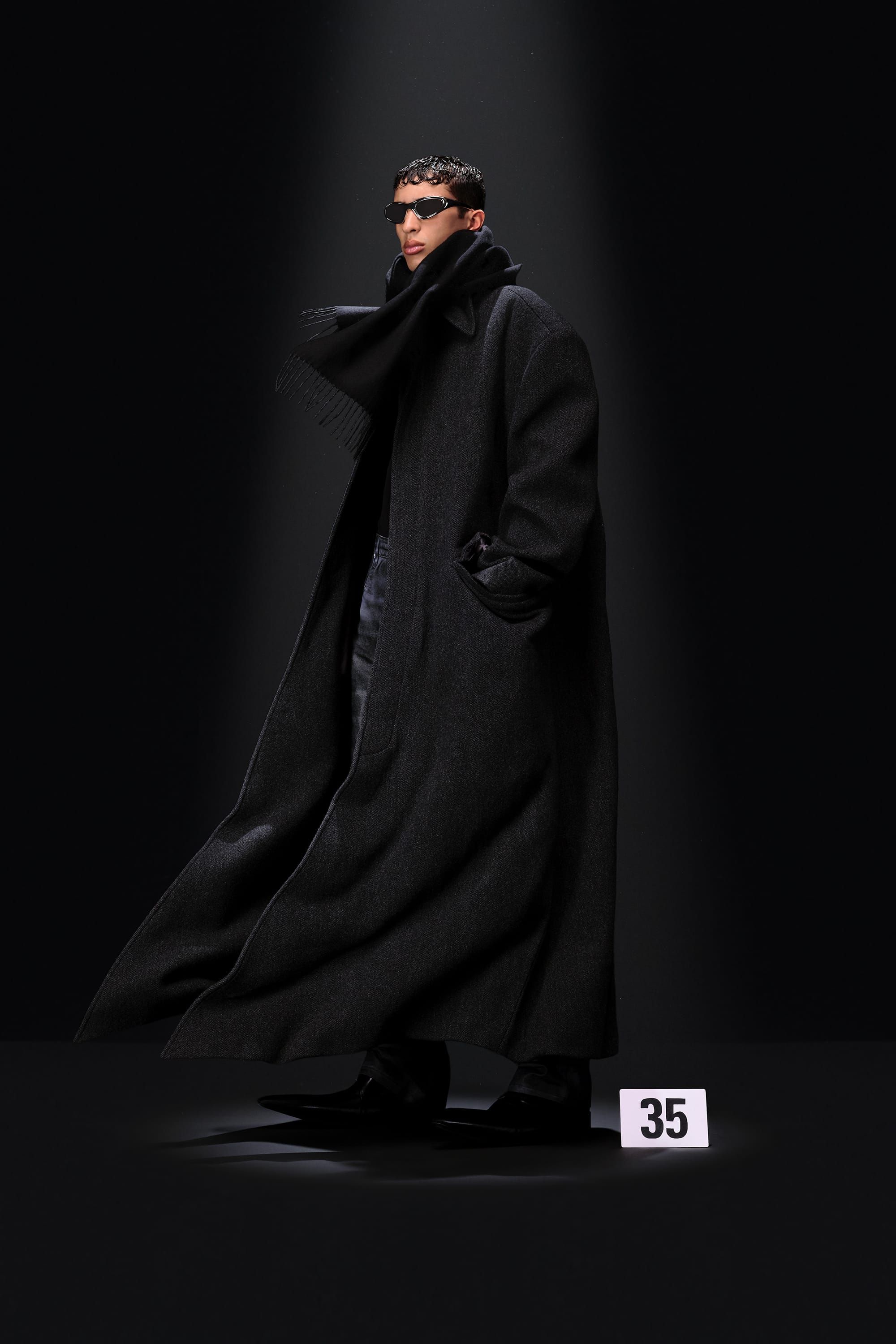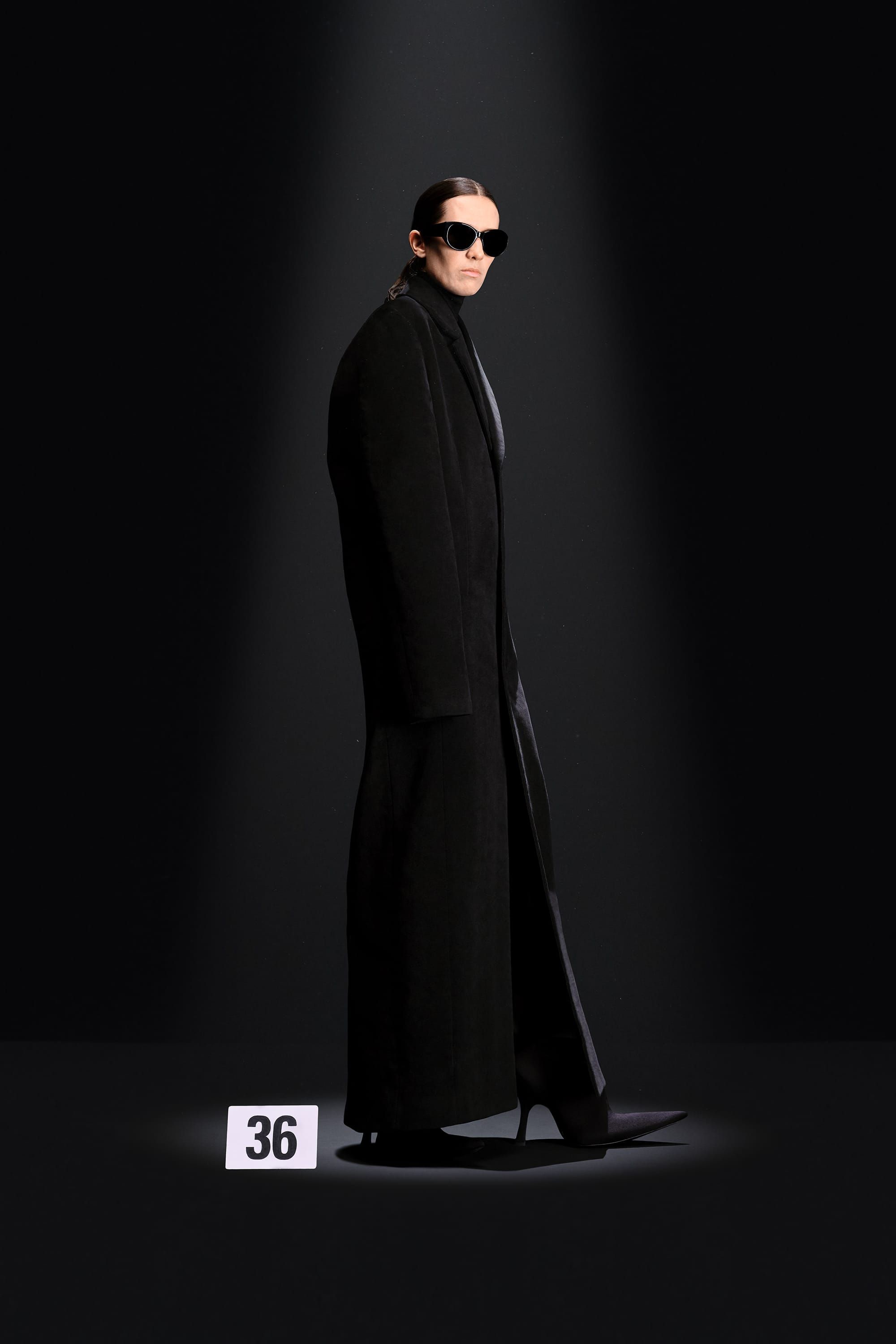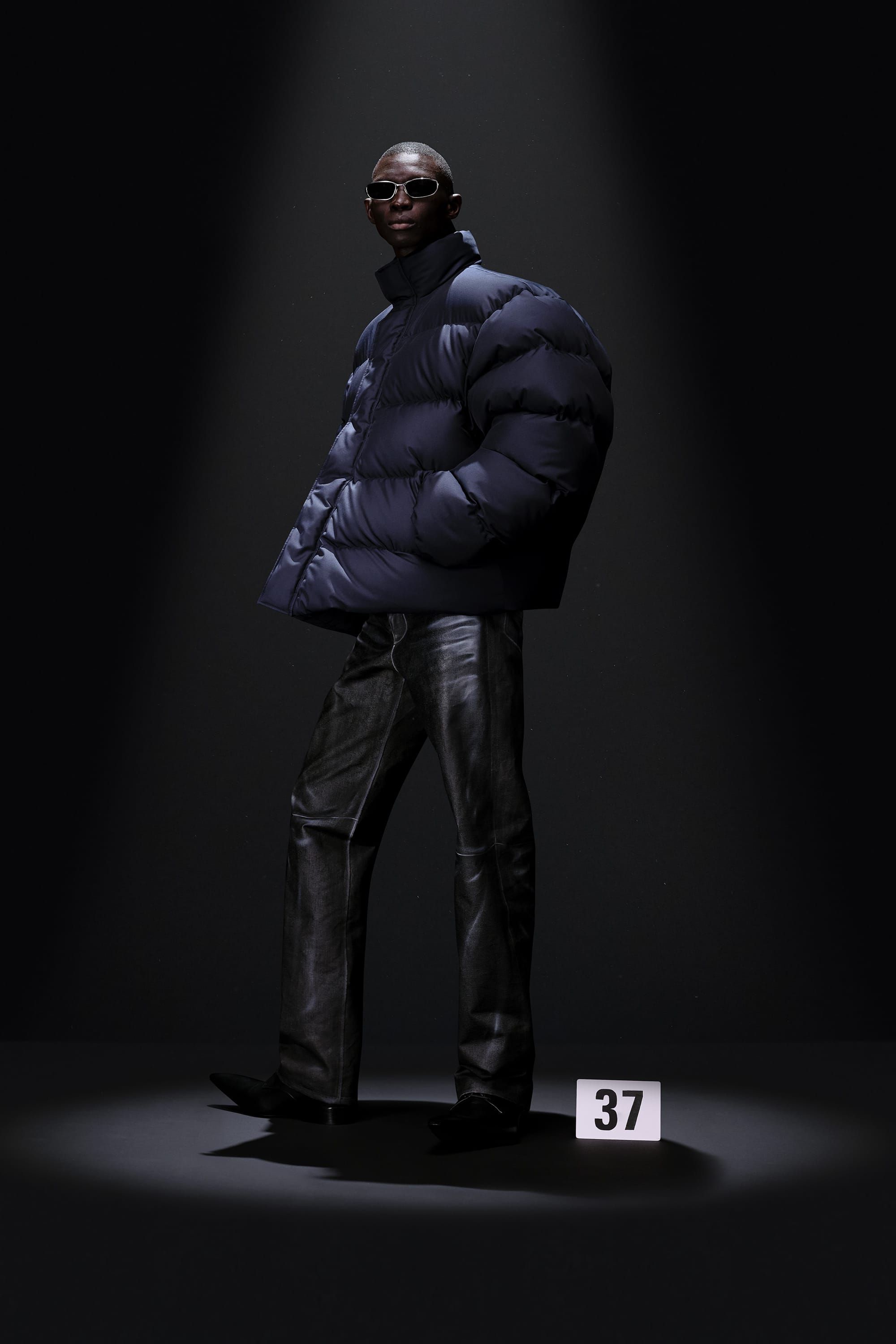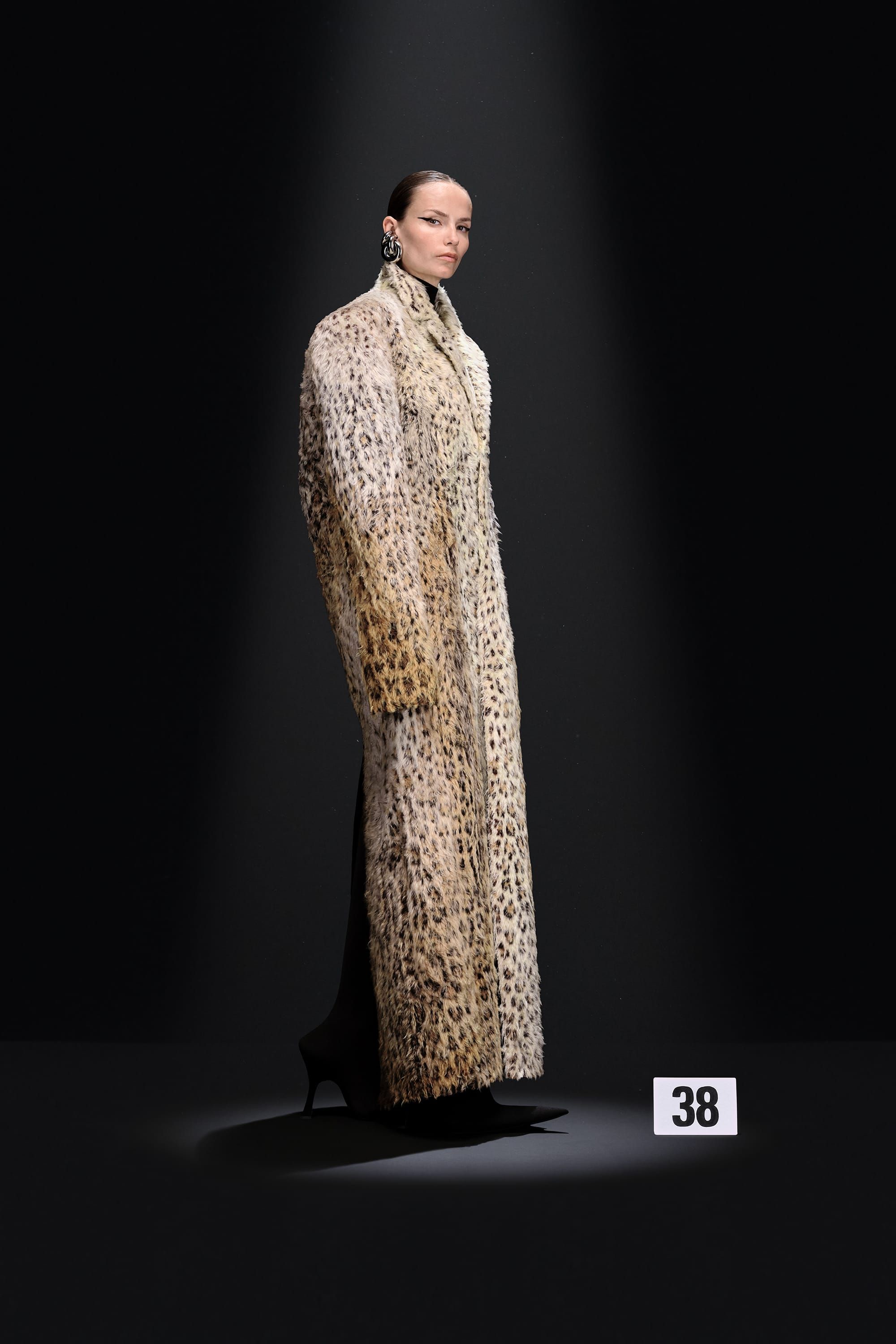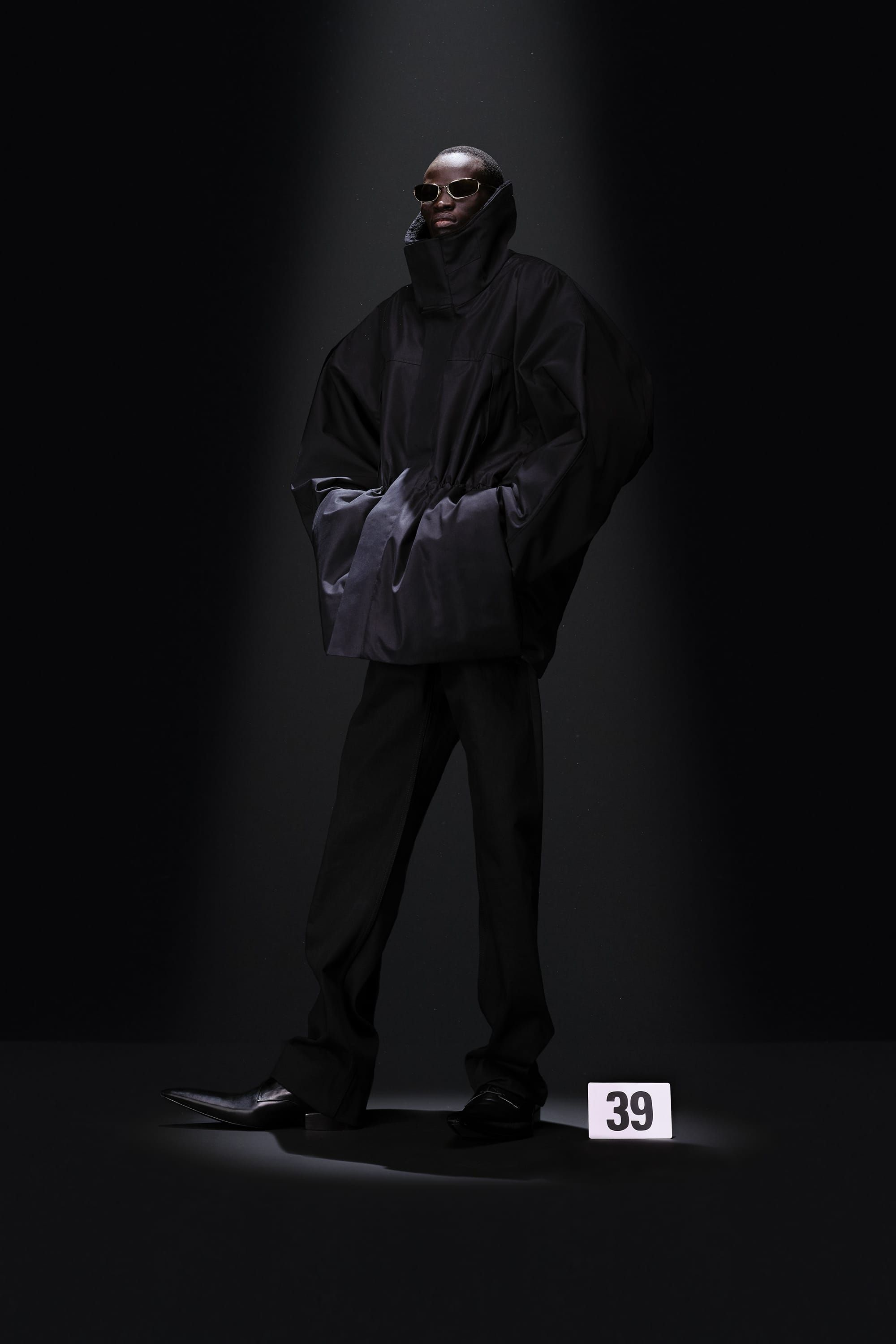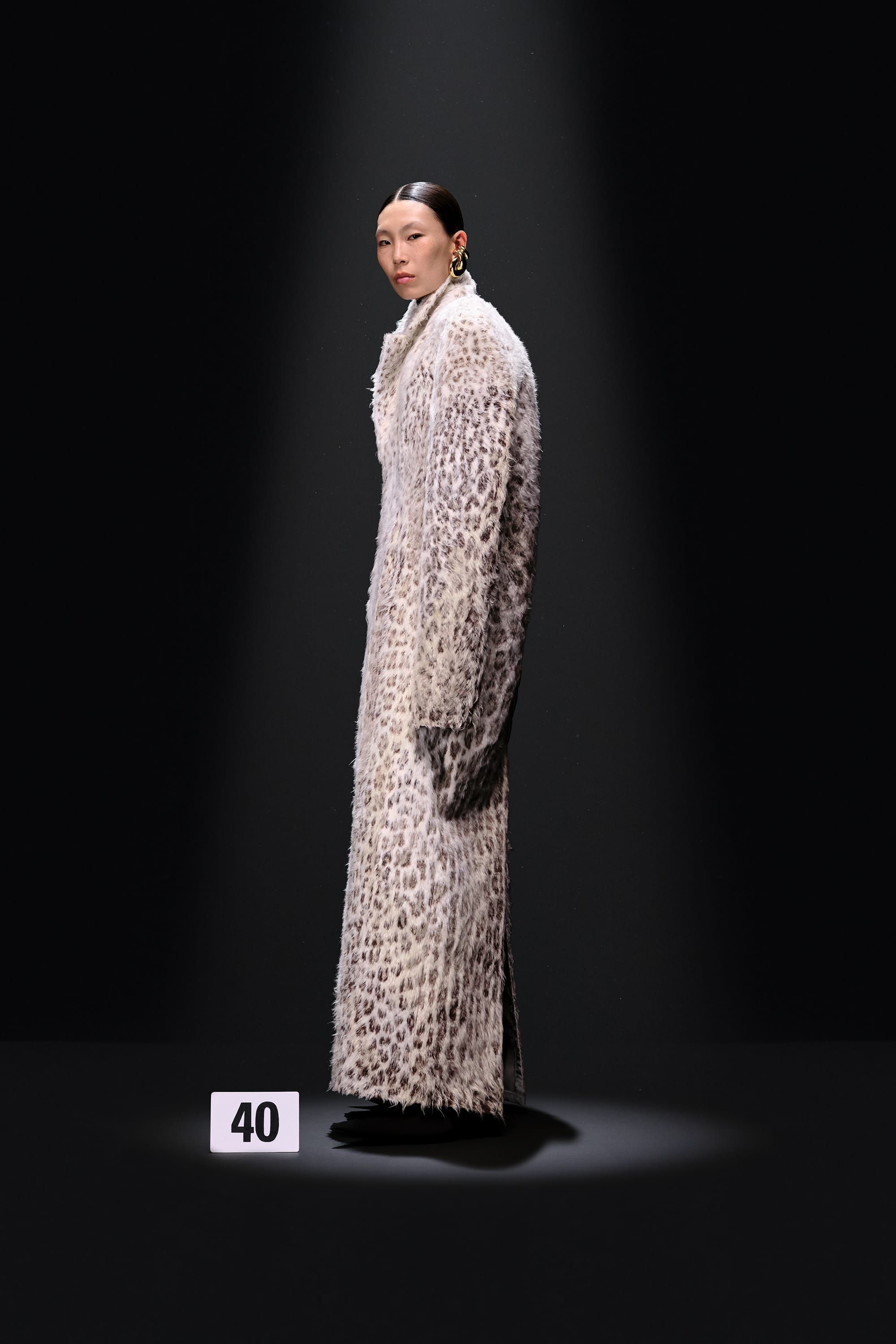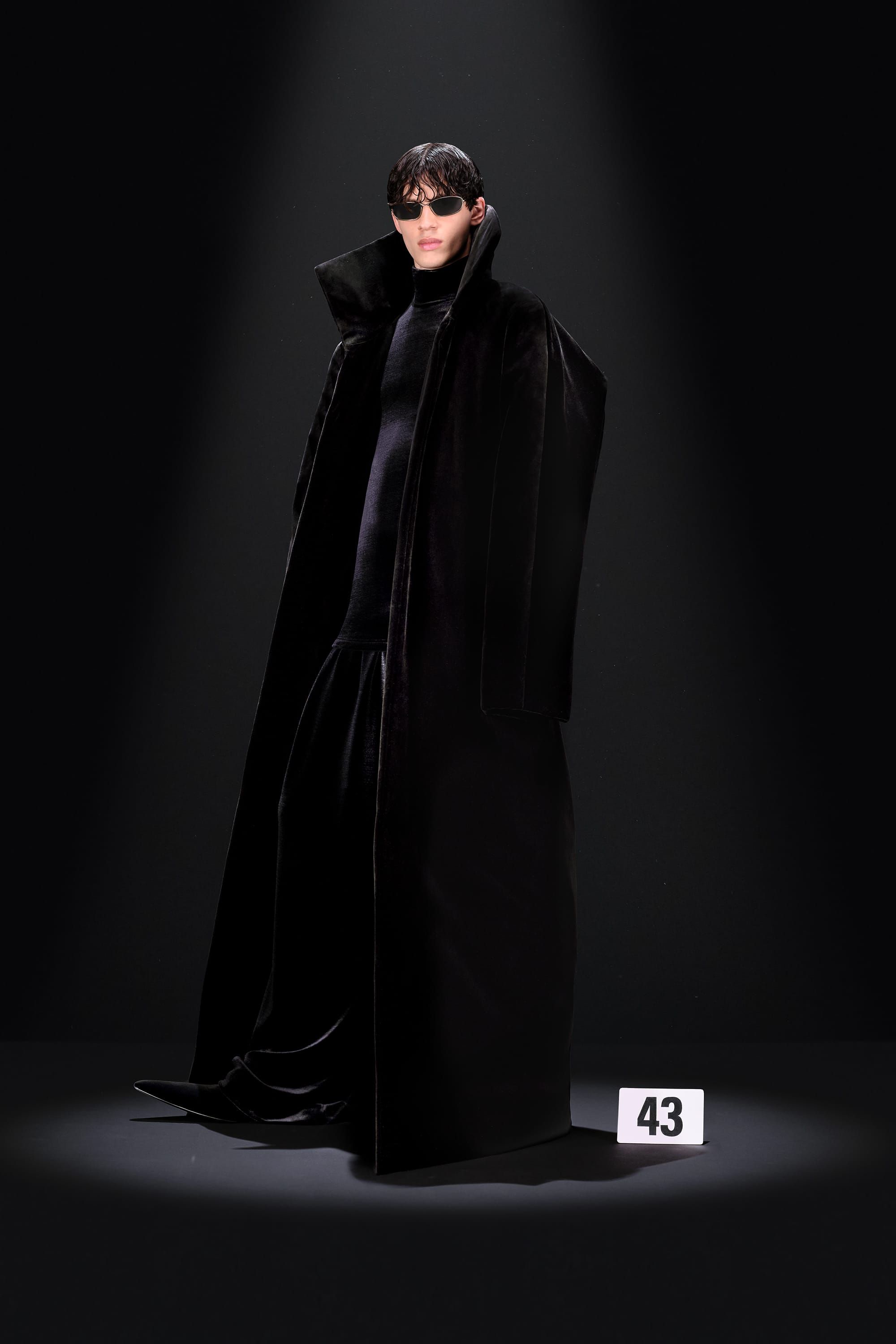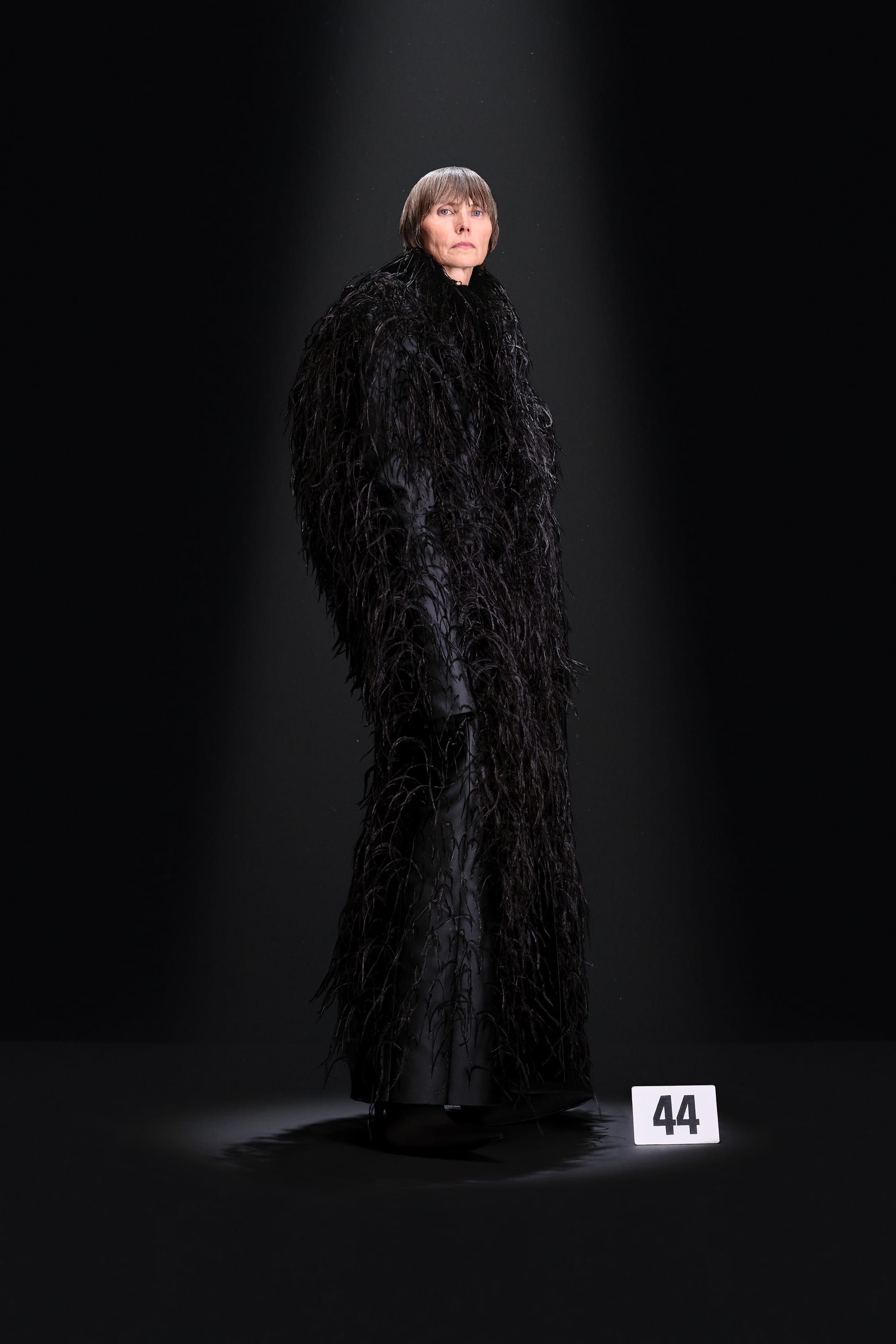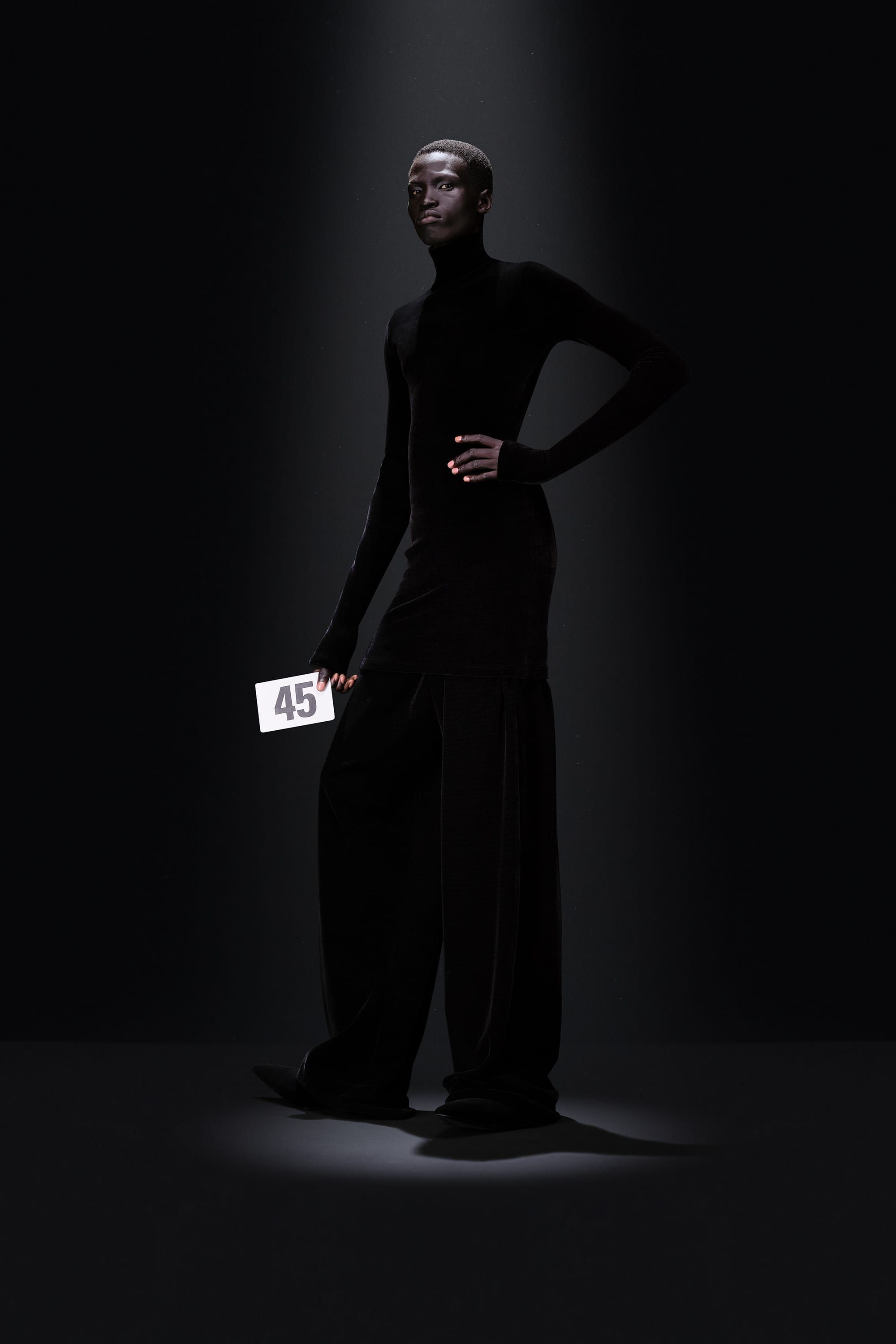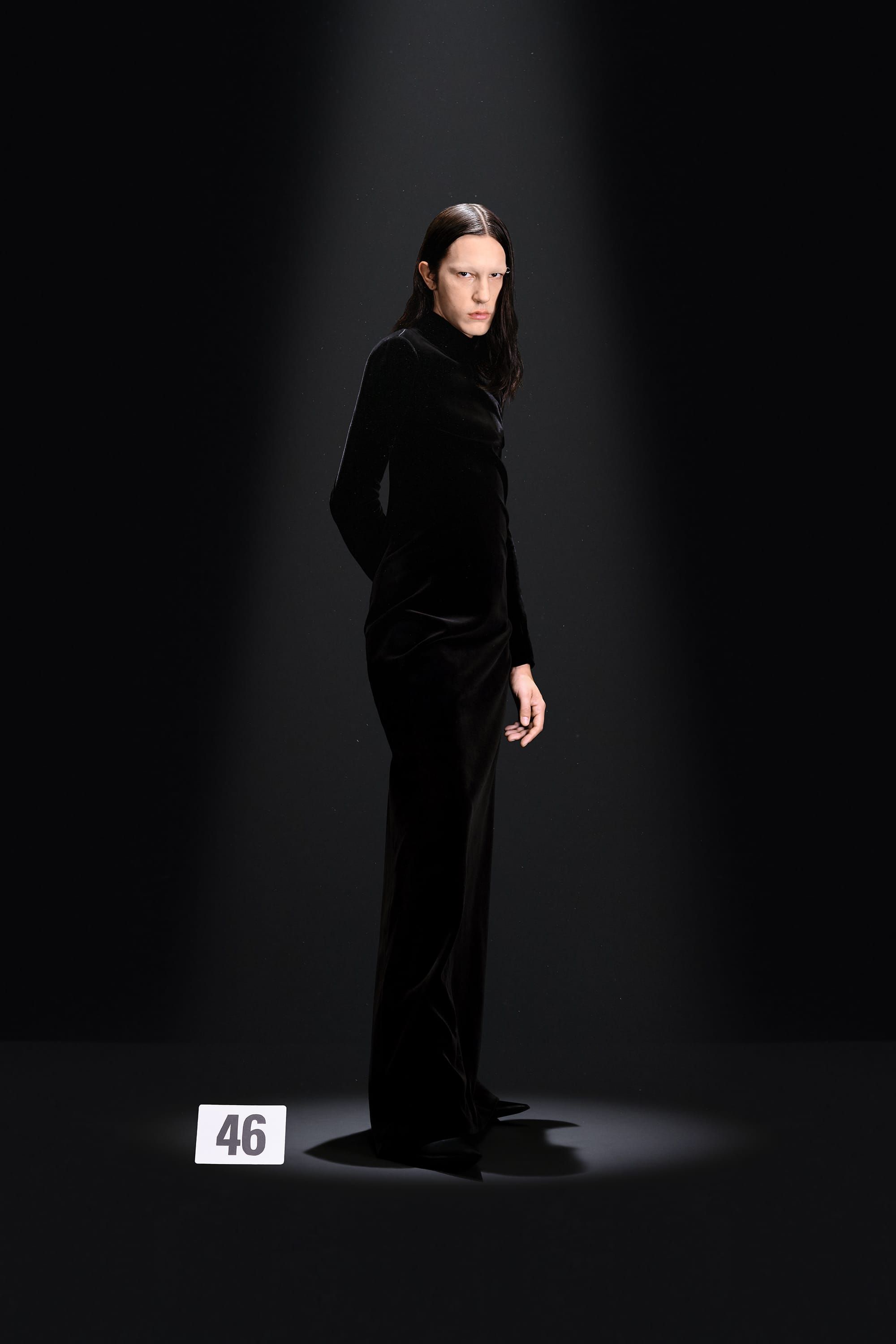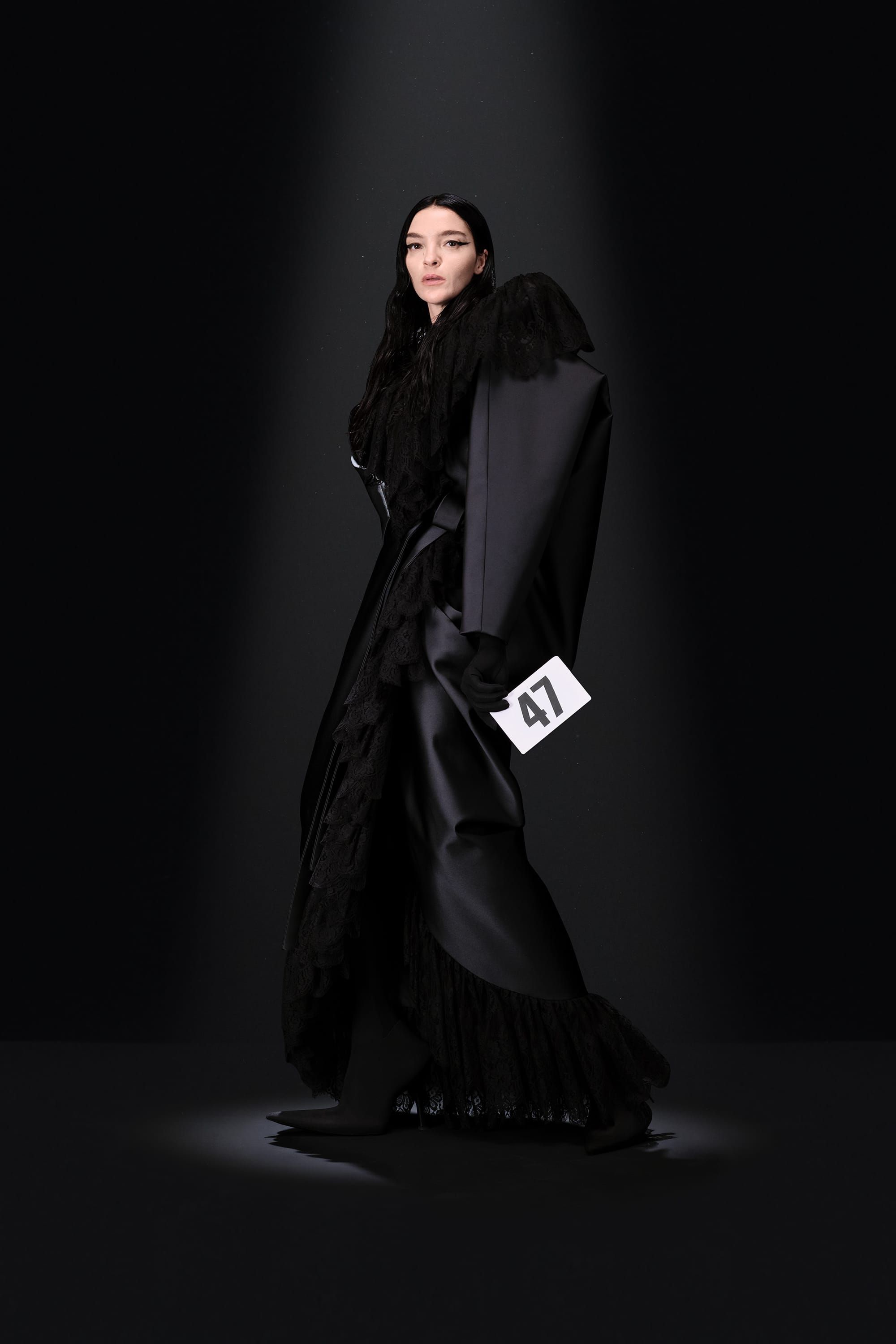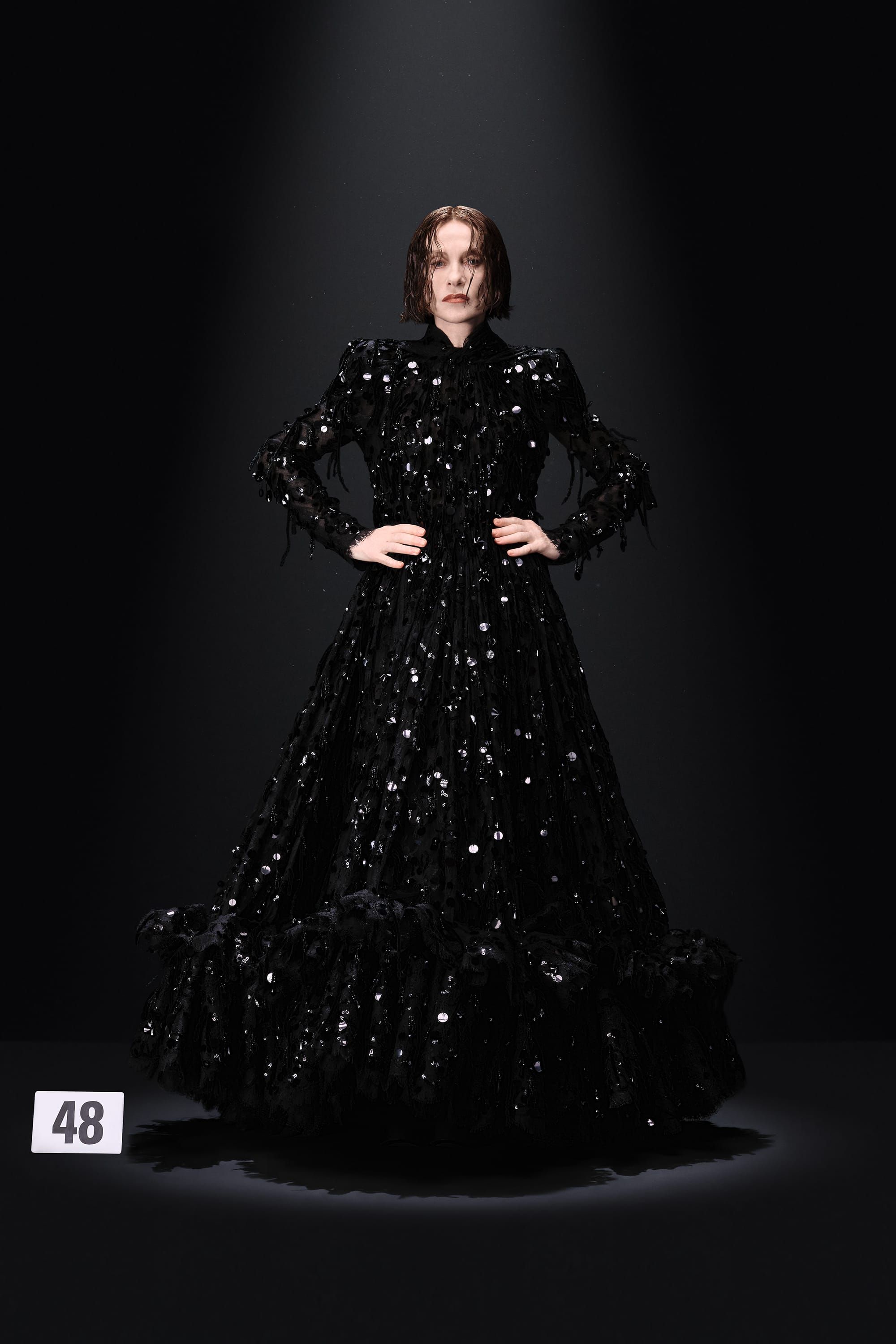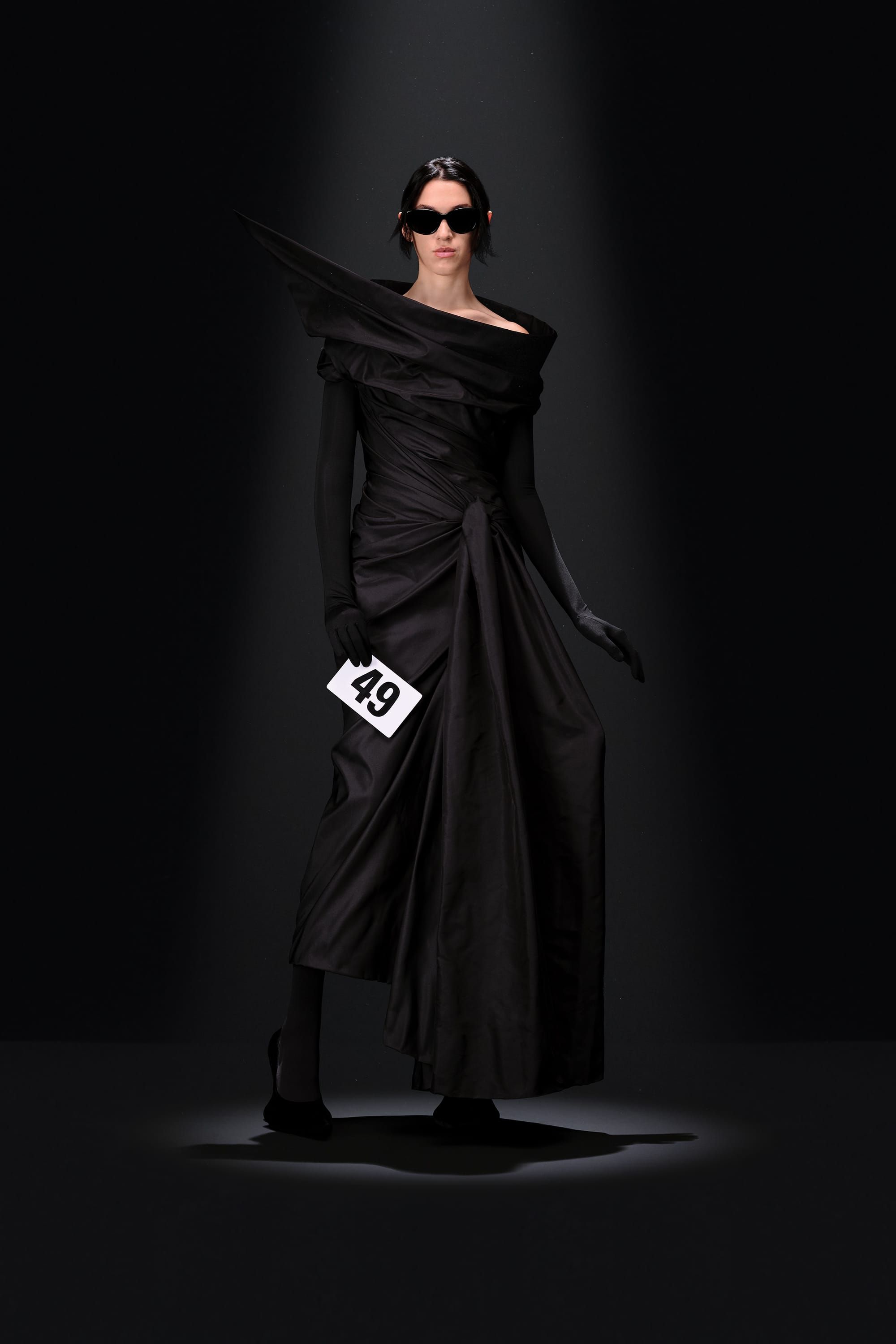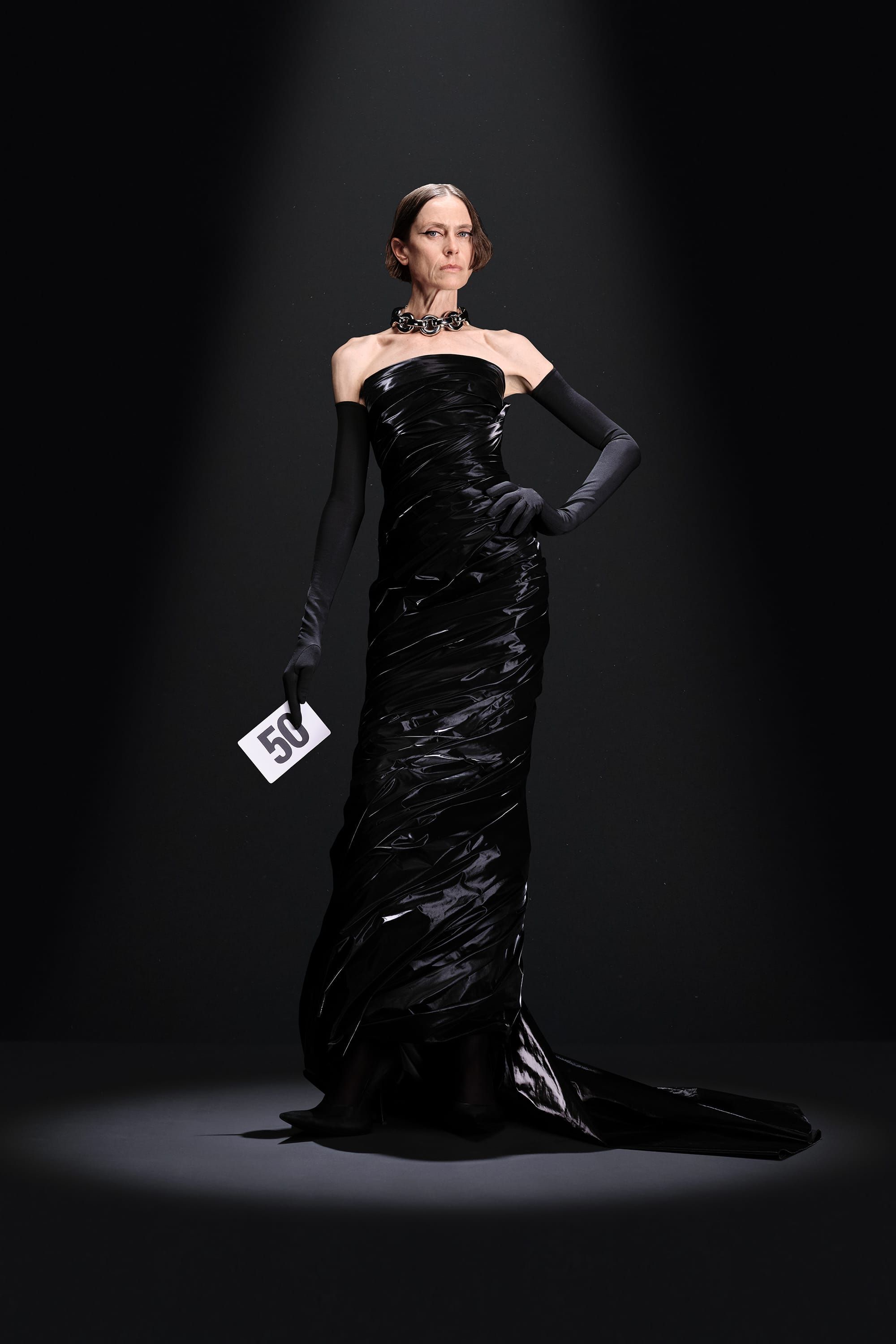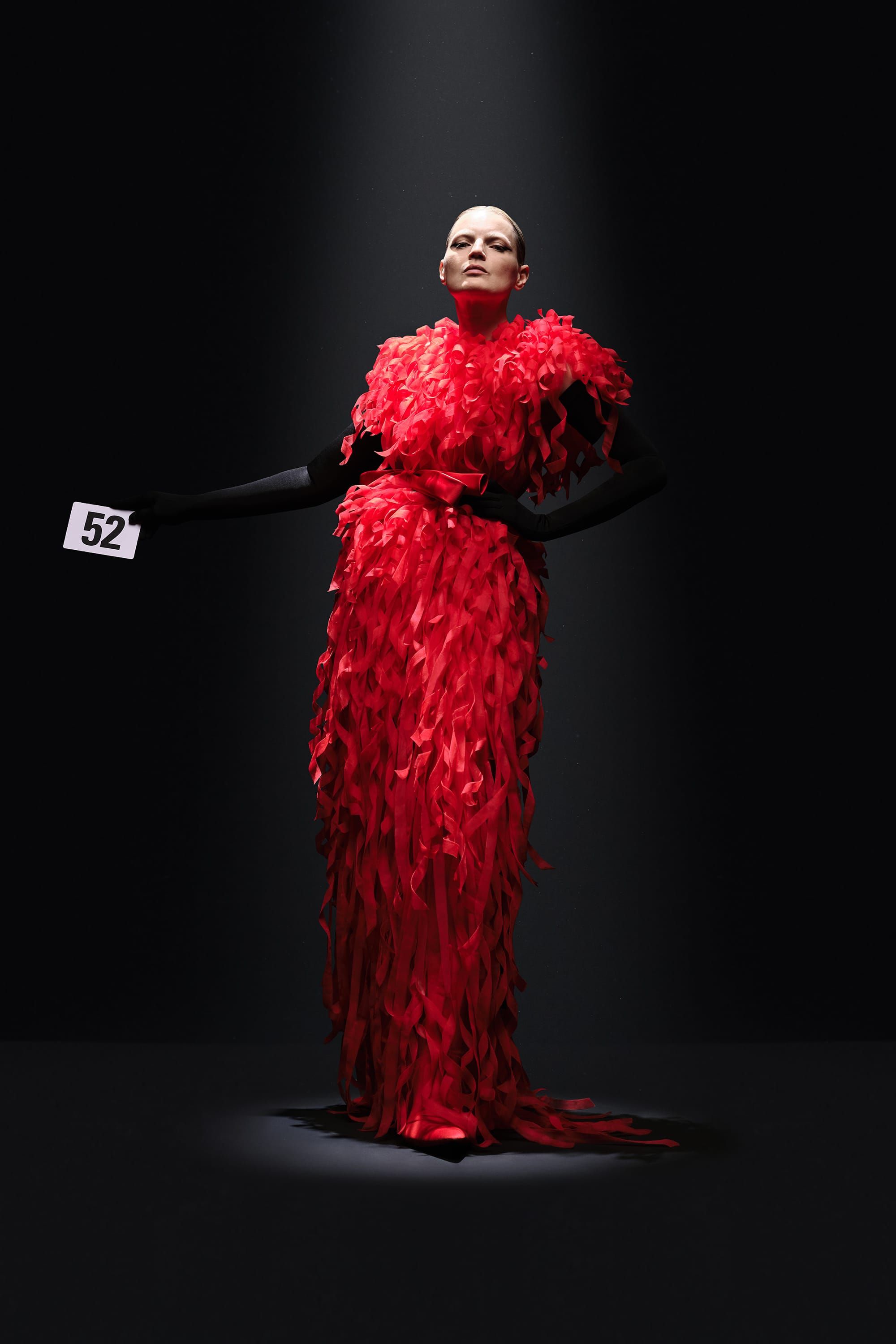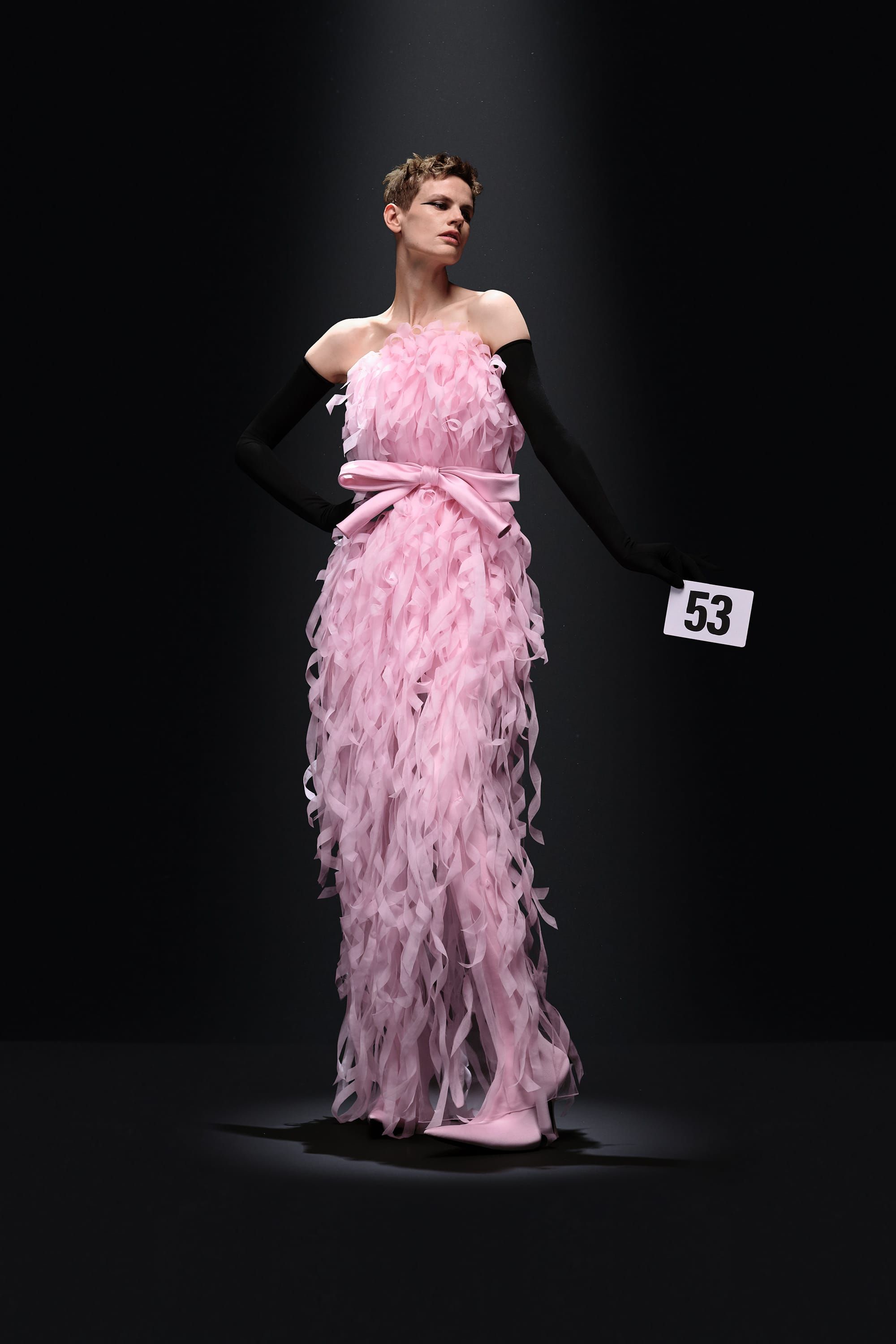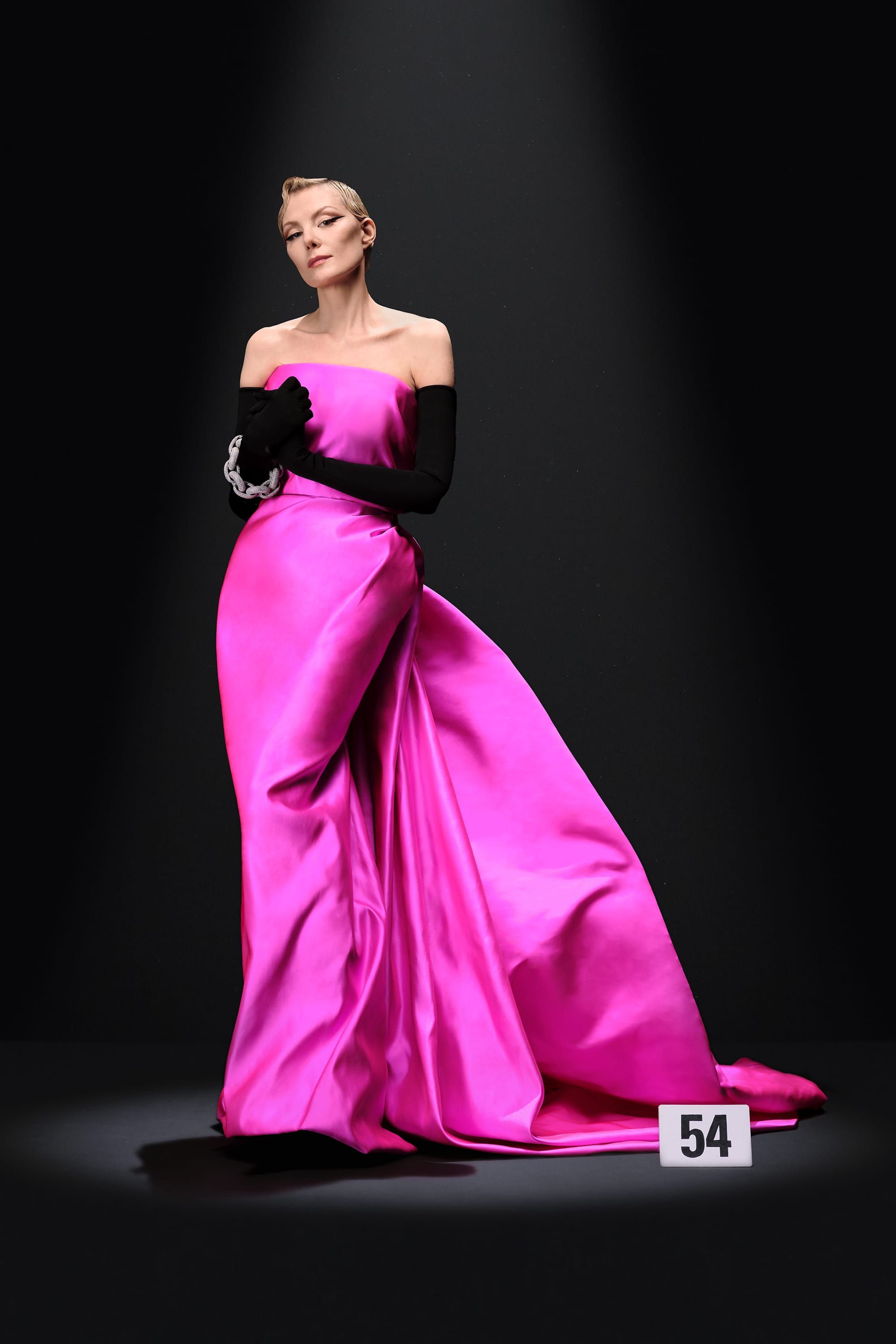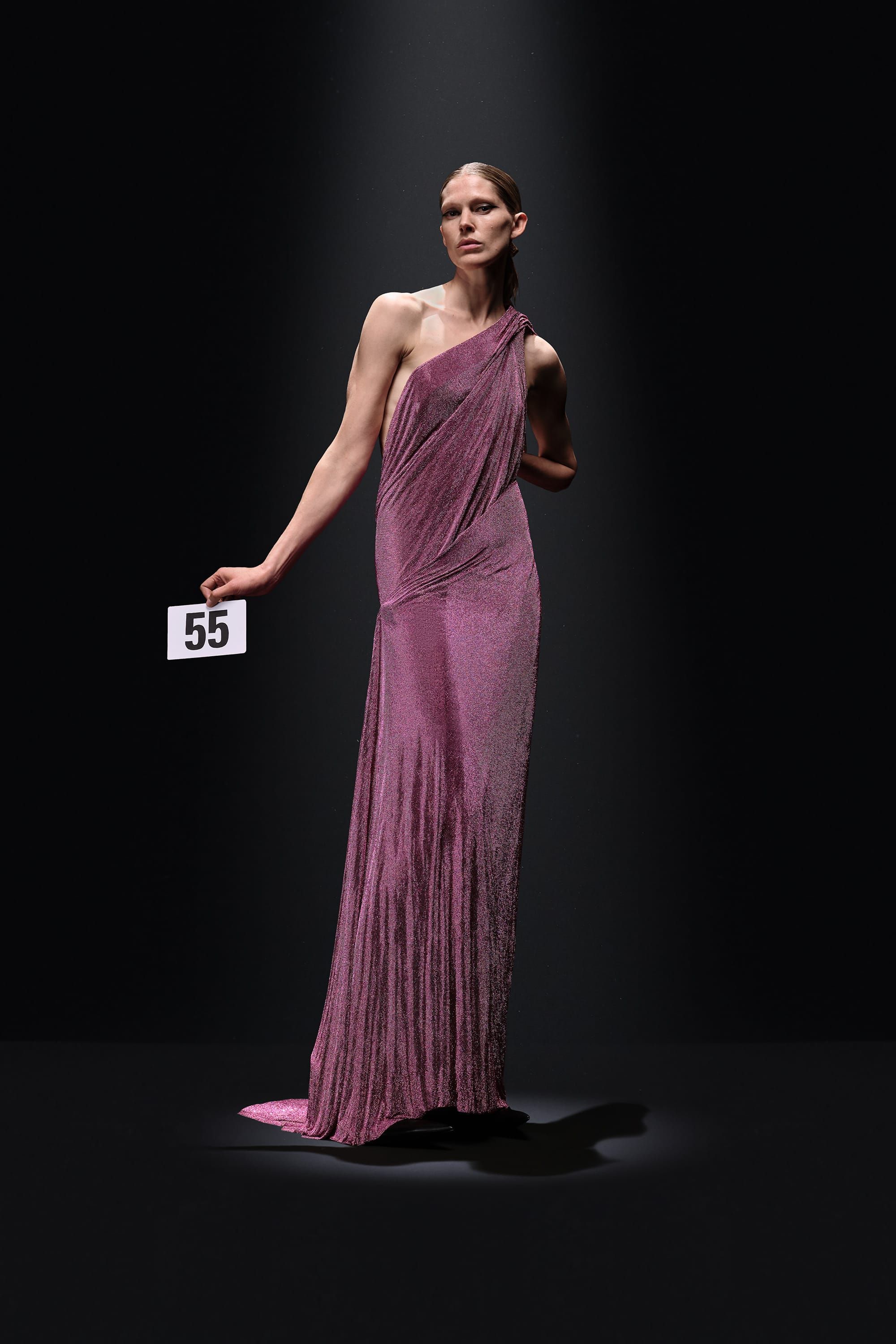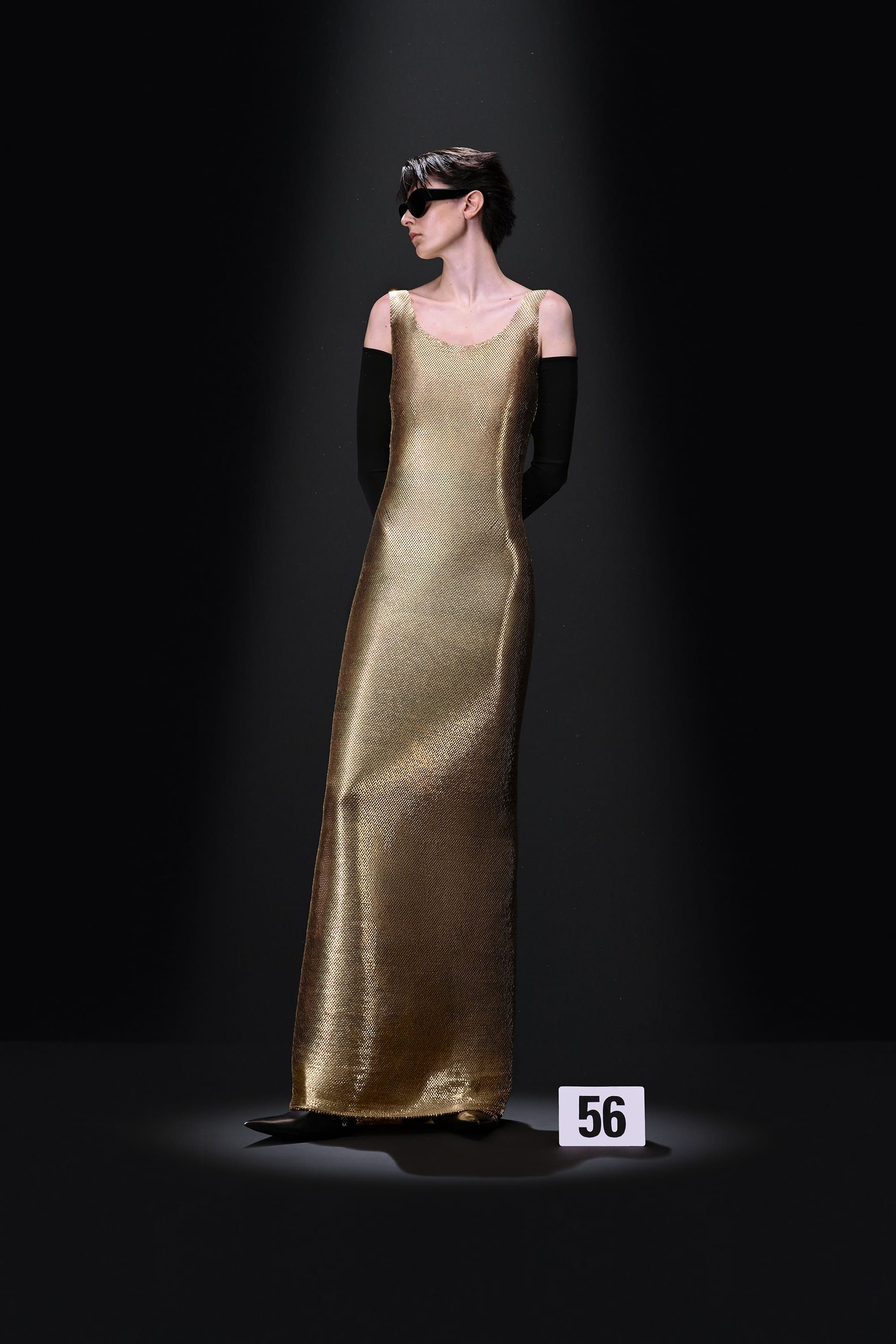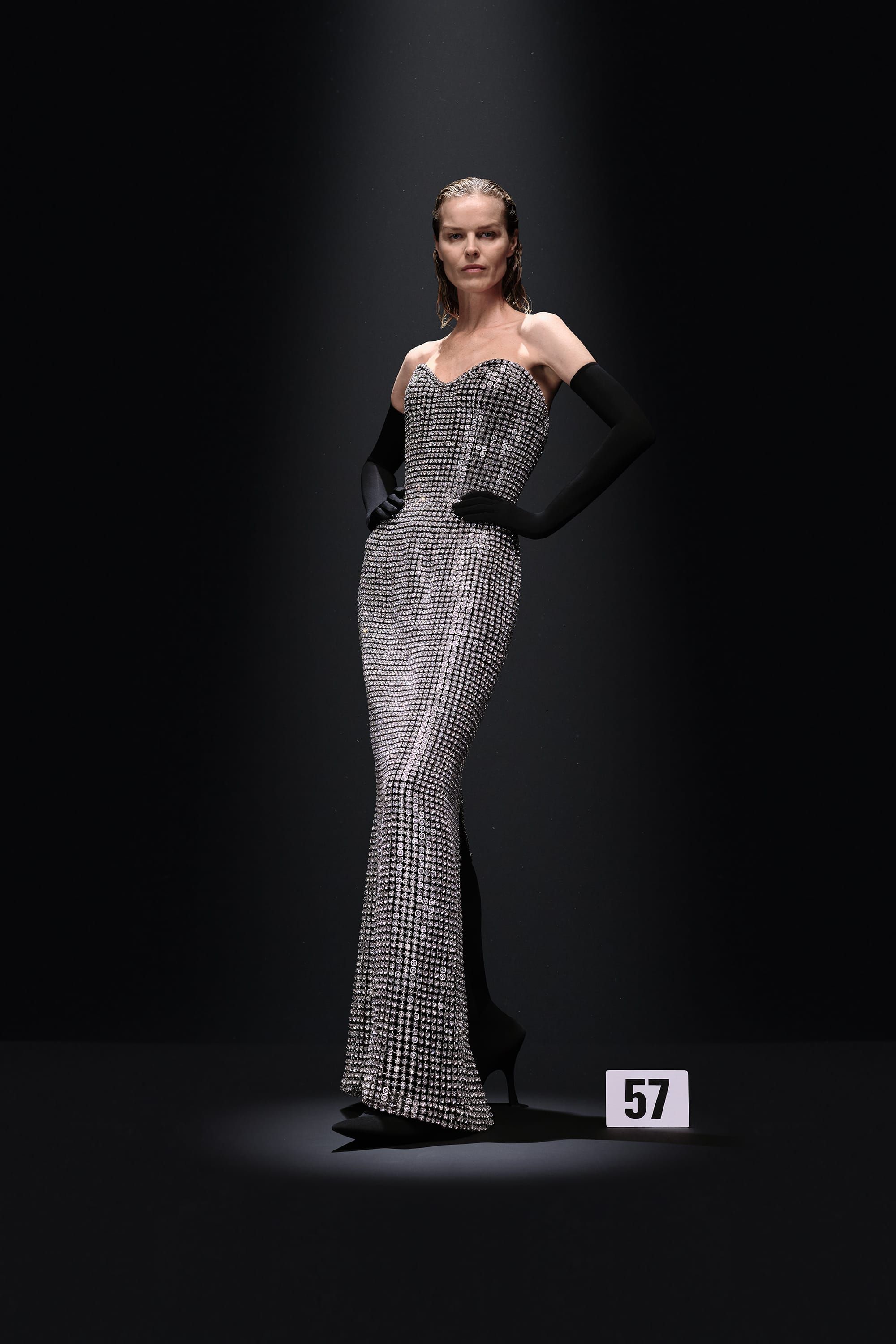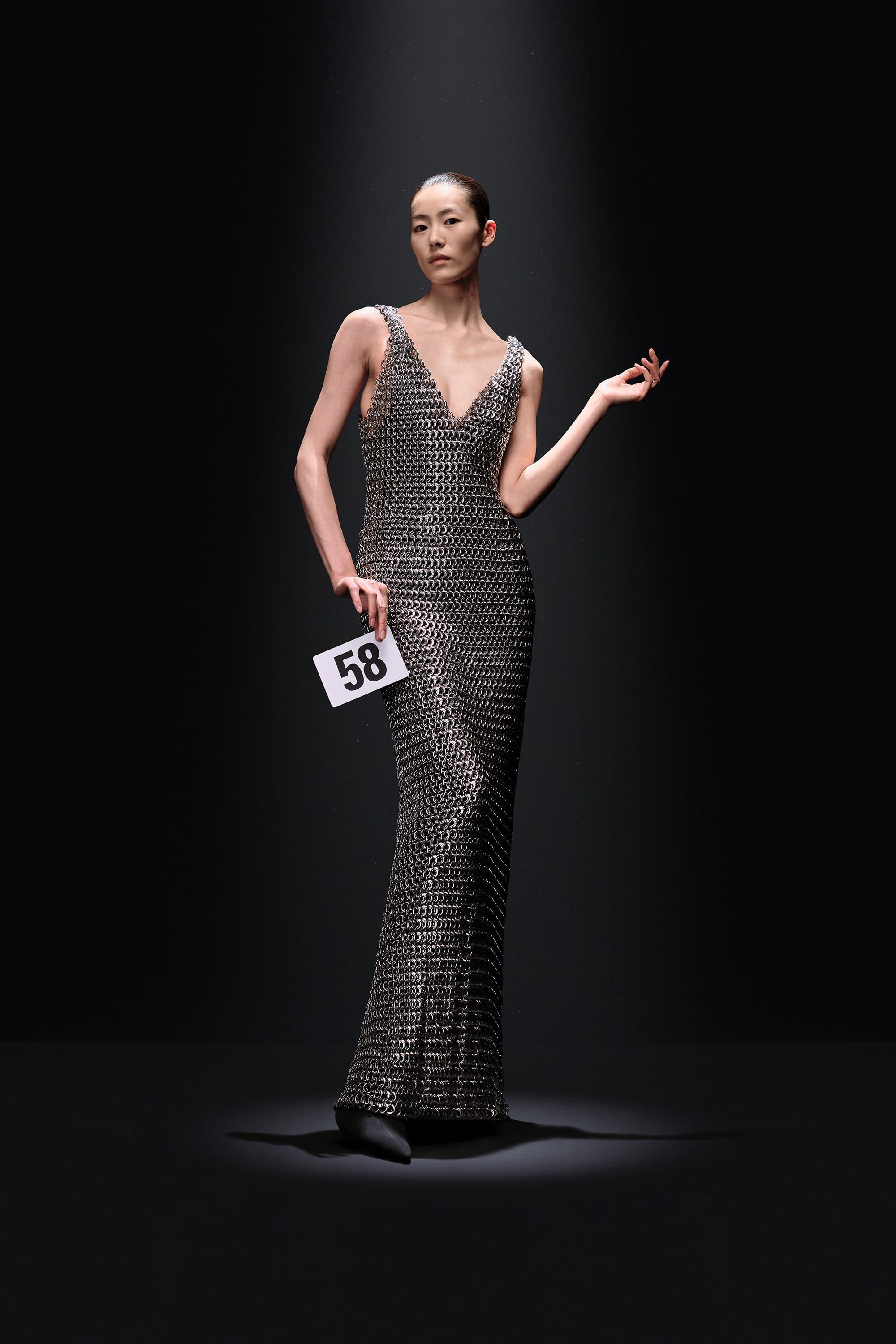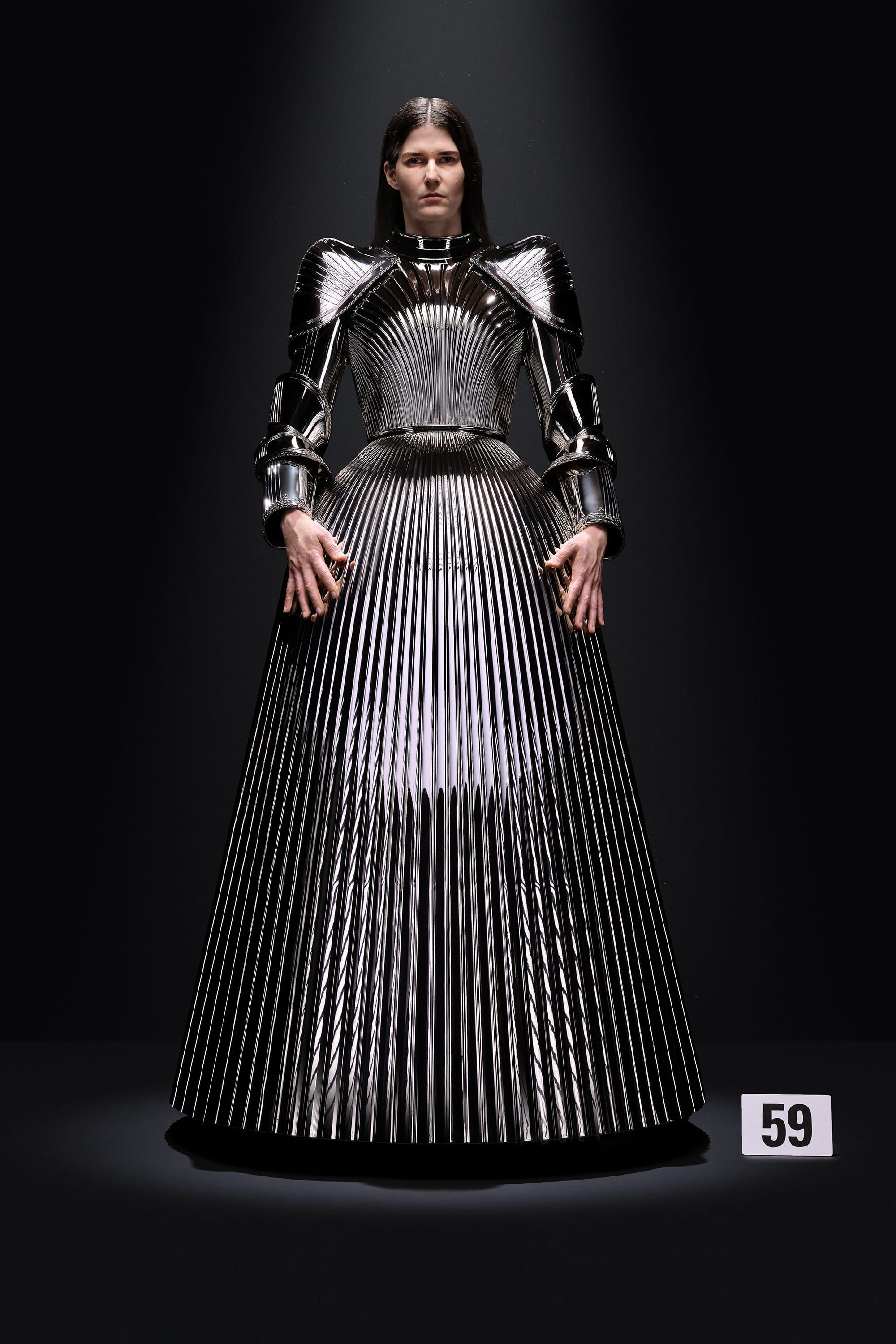52ND COLLECTION
BALENCIAGA 52ND COUTURE COLLECTION
A tribute to pursuing perfection. While true perfection is impossible, it is always in the mind of the couturier.
On July 5th, Balenciaga presents its 52nd Couture Collection. It is Demna’s third for the house. The show, held in the salons at 10 avenue George V, is scored to a BFRND reworking of Maria Callas’ operas in a never-before-heard a capella format. No known Callas recordings occurred in studio or without orchestral backgrounds. BFRND collaborated with a sound engineer, using two AI programs to lift the soprano’s voice. The isolated singing becomes sonic couture.
The first look of the show interprets an original Cristо́bal Balenciaga design, seen on Danielle Slavik, the couturier’s preferred model from 1964-1968. The original was her favorite piece she ever wore. Grace Kelly also admired the ensemble; she purchased it to wear for her 40th birthday party in Monaco.
The dress, with velvet flowers and an integrated pearl necklace, connects the past and the present by reimagining the first iteration in a mirrored construct. The concept moves into architectural tailoring. Sharp shoulders, a curved-V neckline inspired by the hemlines of the couturier’s original tailored jackets and a shaped waist define this section. For menswear, suits appear as if in Prince of Wales check or pinstriped wool. With both, the textile is actually Japanese denim woven on antique looms.
Trompe l’œil surfaces as a modern way of acknowledging traditional materials. Linen canvas panels are hand-painted and assembled into garments, such as a padded coat made to look like fur, or trousers proffered as jeans or leather pants. Houndstooth and python textures are replicated, along with buttons and lapels on blazers.
Beneath these applications, the garments are streamlined in build. All dimension is added through oil paint brushstrokes, which can take up to 280 hours to apply. Structure emerges from the two-dimensional. Wool outerwear, cotton trench coats and cashmere scarves are cut and fortified to seem windblown. Even in total stillness. This is executed through two full days of hand-sculpting, and it involves a knitted, bonded liner that reinforces the external fabric.
Eveningwear closes. Taffeta is given body, with movement away from the shoulder. Or it is treated with a bespoke method to create a liquid, plasticized impression, and draped in a spiral around the torso. One bustier dress is composed of 10,000 crystals, and requires the individual application of 3D-printed resin stone settings for each-and 900 hours of production time. The use of Swiss guipure lace, enlarged and woven chainmail and sequin-sewn filigrees underpins the excellence in craftsmanship that is constantly sought by the metier.
A finale dress of CAD-designed, 3D-printed armor and galvanized resin is polished in chrome, with a coating of black flock along the interior-like a jewelry box. Rigid and reflective, it embodies a temporal crossroads, fusing classical techniques with cutting-edge advancements. It also demonstrates a new reality. As with the sound element, perfection will now only be neared if technology is included as an addition to the most important factor in dressmaking: the human component.
